

Features:
• ADHD and Me –Real-life stories with 1decision’s CEO
• ‘Be Happy to Be You’Helping children embrace individuality
• Kidpreneurs: How entrepreneurism redefines success





• ADHD and Me –Real-life stories with 1decision’s CEO
• ‘Be Happy to Be You’Helping children embrace individuality
• Kidpreneurs: How entrepreneurism redefines success



Create a survey for your school in three minutes (or less!)
Use our expertly crafted questions
See how your school compares to national benchmarks “The report is excellent. Very easy to understand and the comparison is very powerful. I am already a bit hooked... brilliant idea!”
R. Bottomley, Headteacher

04 Reverse Advent Calendar
Explore how schools can unite to support their local community through kindness and teamwork this festive season.
06 A Champion for Sports and Well-Being
Celebrating Mrs Danika Williams: Inspiring pupils through sports, inclusivity, and mental well-being.
08 Triple Success at National Awards
Celebrating 1decision’s win and recognition as finalists in three prestigious education awards.
10 Do You Believe in Coincidences?
Calling for Campaign Support - We look at the proactive campaigns you can support to help change the future for the better.
12 A Tangible Tale for Better Health Education
Paul Wright shares his personal story and how My BodyBoards are helping children engage with health education in schools.
14 The Impact of Not Training All PSHE Teachers
Hayley Sherwood explores the benefits of comprehensive, whole-school development training for PSHE.
16 Winter Awareness Days
A round-up of PSHE and RSHE related awareness days and important dates for your diary.
18 The Hidden Metrics of Personal Development
Does your team have access to a PSHE/ RSHE programme?
We’re showcasing our newest tool and explaining why you’d be mad to miss out.
20 Looked After? Inspirational Reads from Children in Care
1decision's Sophie Hearn shares her thoughts on Ashley John Baptiste’s best-selling book, Looked After.
22 Latest PSHE and RSHE News
A collection of the most important conversations, initiatives and news for PSHE, RSHE, PSED and personal development in primary.
24 Extra Dates Added to Disconnect to Reconnect
We’re sharing new dates and digital detox information from the wellbeing team at Leed’s City Council as they urge us to step away from our devices and ‘disconnect to reconnect’.
26 Feedback From University of Winchester
Helen Benson explains how 1decision is helping to train the next generation of PSHE teachers and leads.
28 ADHD and Me
1decision’s CEO, Hayley Sherwood opens up about her personal experience with ADHD and what she needed as a neuro-divergent pupil in school.
30 ‘Happy to Be You’: Helping Children Embrace Individuality
Diane Hull, explains why teaching children to embrace their uniqueness is key to healthy development.
32 Kidpreneurs: Redefining Success
Rachael Down speaks to Cassandra Chamberlin to discover why we need start teaching entrepreneurial skills in primary schools.
36 Toothbrushes in the Classroom
Can schools help solve the UK’s dental crisis? We explore the government’s initiative to promote dental care in classrooms.
38 From Pocket Money to Pay Cheques
We investigate why financial literacy needs to be a priority in primary education and how it benefits children for the long term.
40 Why Schools Need to Invest in a PSHE Scheme: The Hidden Costs of Not Having One
We’re looking into the long-term benefits and whole-school value of opting into a structured PSHE scheme.
In a world that often feels divided, it is uplifting to see communities coming together to make a tangible difference in the lives of those in need.
One such initiative is the Reverse Advent Calendar, a project that embodies the true spirit of giving. Born out of a simple yet impactful idea, this movement has grown to inspire schools and communities across Hertfordshire and beyond.
The concept was first introduced by Jane Current, headteacher at Broombarns Primary School in Hertfordshire. The Reverse Advent Calendar flips the traditional advent calendar on its head, encouraging children to bring in food donations rather than receiving treats. These contributions are then pooled together and delivered to local food banks, helping to support vulnerable families, particularly in the quieter months after Christmas when donations often dwindle.
Kenny Arnold, a volunteer based in Hertfordshire, was so inspired by Jane's initiative that he took it upon himself to expand the project. Working tirelessly, Kenny has introduced the Reverse Advent


Calendar to schools in Stevenage and the surrounding areas. His efforts have significantly boosted food bank donations, particularly benefitting the local Foodshed, a vital resource for struggling families.
Kenny’s passion for community engagement and his determination to spread kindness have turned this grassroots initiative into a growing

movement. His goal is simple: to ensure that food banks can continue to support families in need well into the challenging winter months.
This inspiring movement caught the attention of 1decision, a Hertfordshirebased organisation known for its

educational resources that support the development of life skills in children. Specialising in creating tools for schools that empower children to make positive life choices, 1decision saw an opportunity to amplify the Reverse Advent Calendar’s message.
In collaboration with Kenny Arnold and the local Foodshed, 1decision has developed a new assembly pack designed to inspire children to think about the many ways they can help their communities. This free resource, available to all schools across the UK, features a touching video story that follows a family as they give back to the same food bank that once supported them. The narrative is a powerful reminder of how acts of kindness can come full circle. The assembly also provides children with idea coupons, encouraging them to think beyond food donations. These include suggestions such as writing letters to elderly residents or hospital patients over Christmas, spreading joy and connection to those who might otherwise feel isolated during the festive season.
Kenny Arnold and 1decision are now working to take the Reverse Advent Calendar to a national level. The assembly pack, which is free and accessible even to non-subscribers, is available via the 1decision portal. By making this resource widely available, the team hopes to inspire
The Reverse Advent Calendar initiative is a shining example of what can be achieved when individuals and organisations join forces for the greater good. Schools in Stevenage, Hertfordshire, and the surrounding areas have already seen the positive impact of this project, and now its
reach is set to grow even further. If your school or community is looking for a way to inspire children and foster a spirit of generosity, the Reverse Advent Calendar assembly pack could be the perfect resource.
To find out more and access the assembly materials, visit the 1decision Assembly Pack portal. Or click the image below - best viewed on PC or tablet
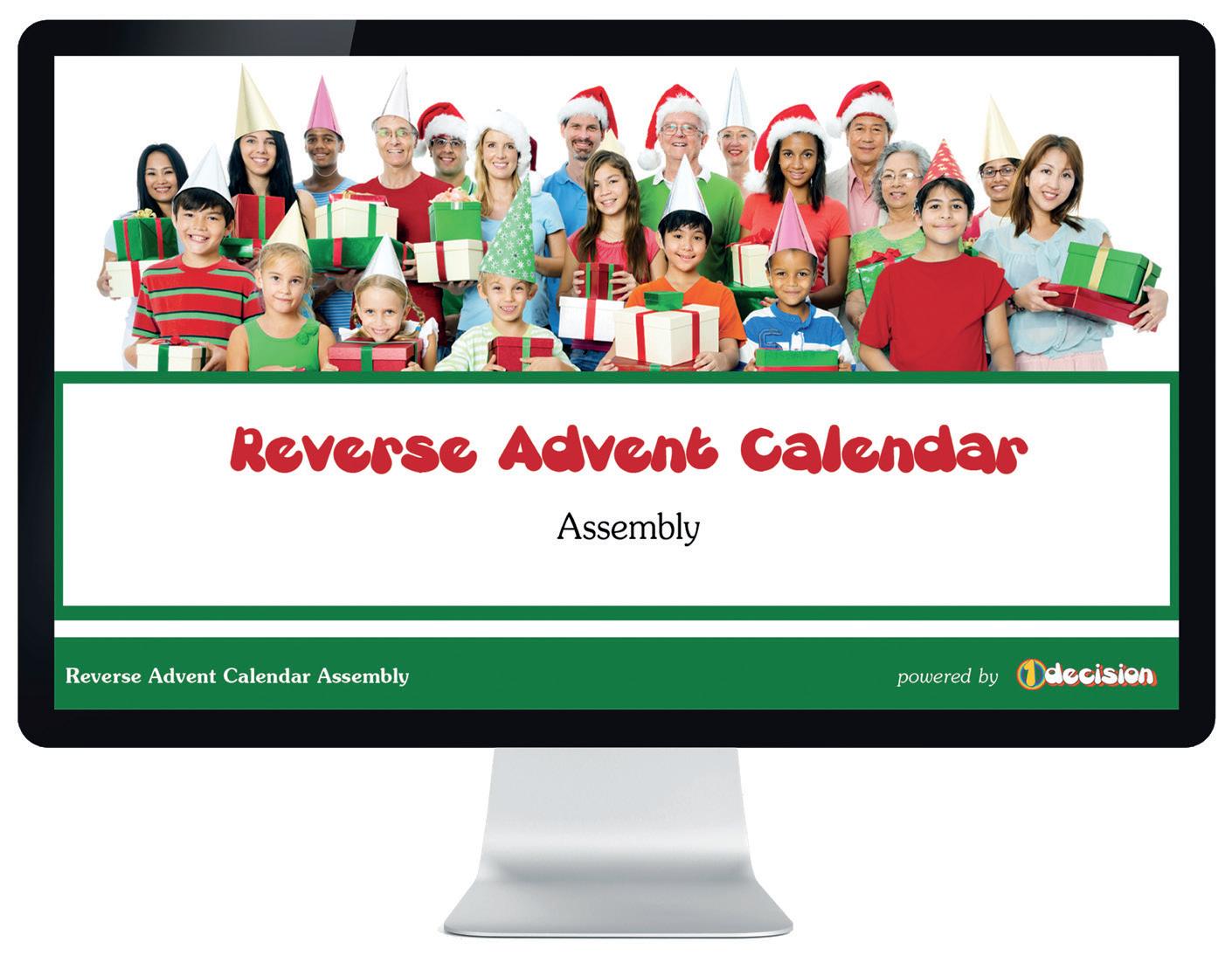


In the vibrant world of primary education, few teachers leave an indelible mark quite like Mrs Danika Williams. A dedicated PE Co-ordinator and Health and Wellbeing Lead at Peartree Spring Primary School, Danika's journey is one of inspiration, resilience, and passion. Her recent accolade as the winner of the prestigious 2024 Stevenage Together Award is a well-deserved recognition of her tireless efforts to enrich the lives of her pupils and their families through sports and physical activity.
A PASSION BORN FROM EXPERIENCE
Danika's love for sports began during her own school years. Inspired by her primary and secondary PE teachers, she knew from a young age that she wanted to follow in their footsteps, becoming a teacher who could inspire children to thrive. For Danika, sports are not just about physical fitness; they are a gateway to better mental health. This understanding was deeply shaped by her personal experiences growing up with a father who battled mental health challenges.
"I've always been determined to make children aware of how important sports and physical activity are for mental health," she reflects. "It's a lesson that has shaped my approach as an educator and mentor."
A DECADE OF DEDICATION
Over the past ten years, Danika has dedicated herself to creating an inclusive, equitable, and inspiring environment at Peartree Spring Primary School. Her passion for inclusivity shines through in her work, ensuring that every child, regardless of gender, race, or ability, has the opportunity to engage in sports. Her commitment to raising awareness about disabilities in sports even led her to write a blog for the Youth Sports Trust, broadening the conversation around inclusivity in physical education.
The challenges of COVID-19 only deepened Danika's resolve to support her pupils and their families. Recognising the need for accessible and budget-friendly ways to keep families active, she developed a range of creative initiatives. One of these, William's Wednesday Workouts, has become a lasting legacy. Supported by local businesses in Stevenage,
"Seeing families come together and embrace movement is incredibly rewarding"
Hertfordshire, this weekly programme brings parents and children together for engaging physical activities, fostering community spirit and well-being.
"The impact has been tremendous," Danika shares. "Seeing families come together and embrace movement is incredibly rewarding."
INSPIRING THE NEXT GENERATION
Danika's influence extends beyond her current pupils. Recently, she was approached by the parent of an ex-pupil, now pursuing a career in elite sports, who expressed heartfelt gratitude for the opportunities she had provided. Moments like these reaffirm her mission to inspire and empower children, no matter their starting point.
A VISION FOR THE FUTURE
Looking ahead, Danika is as ambitious as ever. She dreams of creating a lasting
legacy, continuing to champion the importance of physical activity for health and well-being. She also hopes to collaborate with like-minded individuals who share her passion for making sports accessible and inclusive for all.
Winning the Stevenage Together Award is not just a personal milestone for Danika; it is a testament to the countless children and families she has inspired along the way. "This award is a recognition of the pupils I’ve worked with. If it weren’t for them, I wouldn’t be the teacher I am today," she says with characteristic humility.
SHAPING MINDS, TOUCHING HEARTS
As she continues to innovate, educate, and inspire, Mrs Danika Williams remains a shining example of how passion and purpose can transform lives. Her story serves as a reminder of the profound impact a dedicated teacher can have—not just on the field or in the classroom, but in shaping young minds and nurturing their potential.
Congratulations, Mrs Williams, on your incredible achievements and for reminding us all of the power of sports to build stronger, healthier, and happier communities.
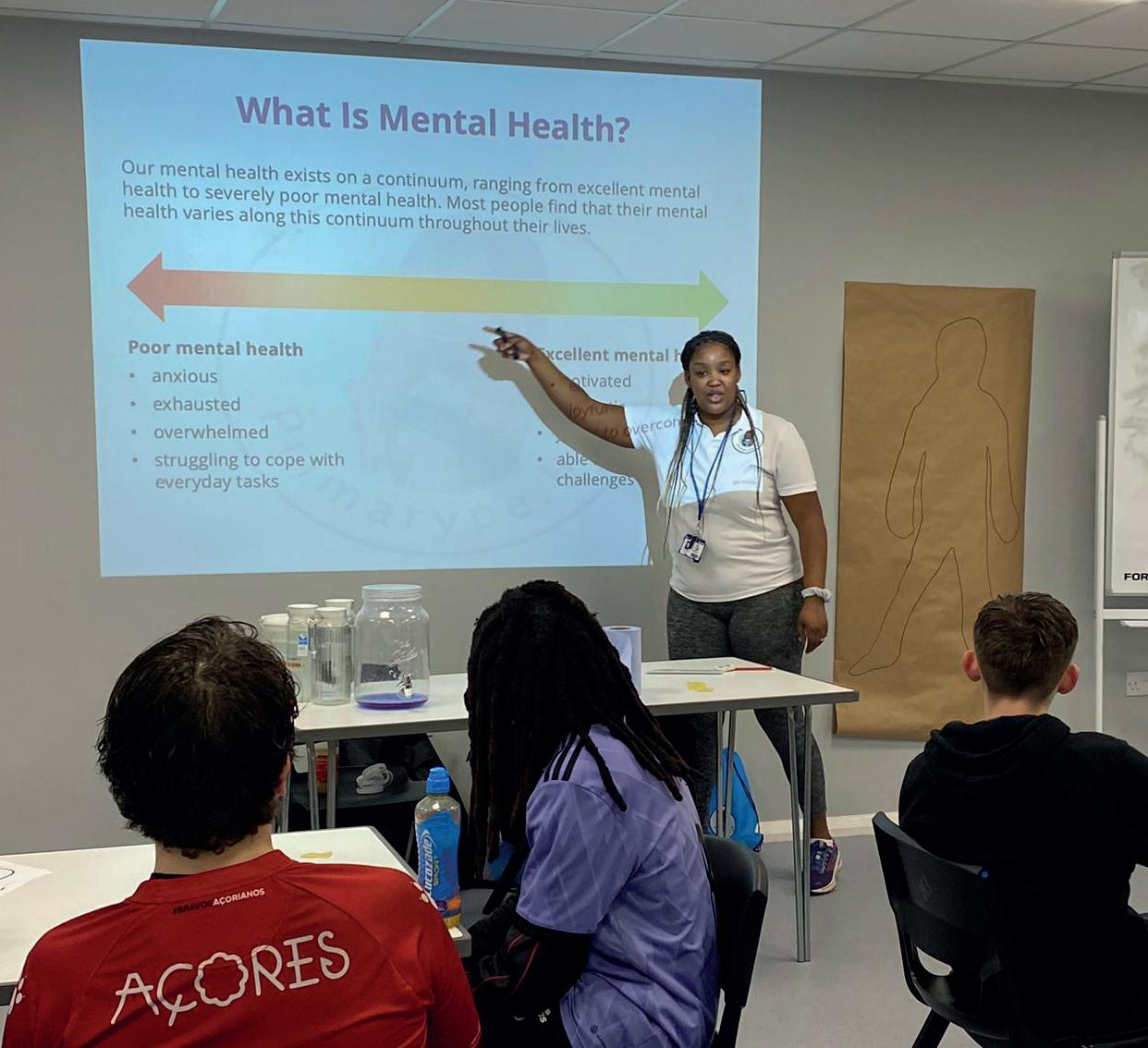

Stevenage-based educational resource provider 1decision has been recognised with multiple accolades, solidifying its position as a leader in Personal, Social, Health and Economic (PSHE) education. The organisation has clinched the Teach Primary Awards 2024 in the Wellbeing category while also being named a finalist in two additional national awards.
The Teach Primary Awards are designed to highlight the very best in educational resources for Key Stage 1 and 2 pupils. Judged by a panel of primary education experts, the awards delve deep into the curriculum to ensure only the most deserving resources are celebrated. In the Wellbeing category, where 1decision triumphed, judges assessed resources based on their suitability, impact, originality, and accessibility.
"Winning the Wellbeing category at the Teach Primary Awards is a testament to the quality and impact of our resources"
1decision impressed the panel with its interactive resources, which support statutory Relationships, Health, and Personal Development education for children aged 3-11. Trusted by over 2,000 schools across the UK and international schools in 19 countries, the programme focuses on enhancing social and emotional development while preparing pupils for secondary school and beyond. The

organisation’s track record in helping schools achieve ‘Good’ and ‘Outstanding’ Ofsted ratings for personal development further cemented its win.
In addition to its success at the Teach Primary Awards, 1decision was named a finalist in the Teach Early Years Awards 2024, a sister scheme celebrating exceptional resources in early childhood education. Shortlisted in the Happy and Healthy category, the entry highlighted the organisation’s resources for children aged 3-7, which help educators foster empathy, celebrate diversity, and build understanding within communities. The submission also featured the company’s innovative app, offering ongoing support for children and families beyond the classroom.
AHEAD: MORE RECOGNITION ON THE HORIZON
Adding to an already stellar year, 1decision is also shortlisted for the Education Today School & Supplier Awards 2024 in the Wellbeing Resource or Support of the Year category. The winners will be announced at a ceremony on 6th December. Earlier this year, 1decision was also recognised as a finalist in the Education Business Awards 2024 in the Educational Resource Awards – Primary category.
Reflecting on this year’s successes, Hayley Sherwood, CEO of 1decision, shared:
"We are absolutely thrilled with these accolades, which reflect the hard work and commitment of everyone involved in 1decision. Winning the Wellbeing category at the Teach Primary Awards is a testament to the quality and impact of our resources, and being finalists in two other prestigious awards further highlights the value of what we provide to schools and educators.
"I want to thank our amazing team and partners for their dedication, as well as the educators who continue to trust us to make a difference in their classrooms."
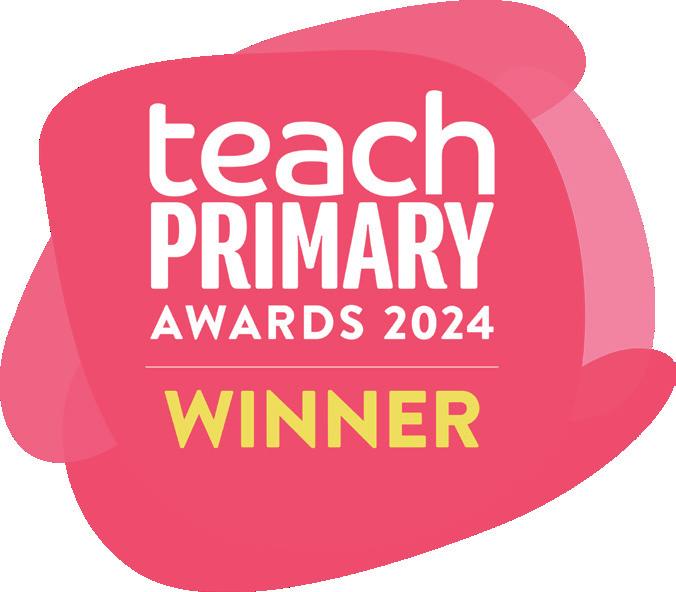
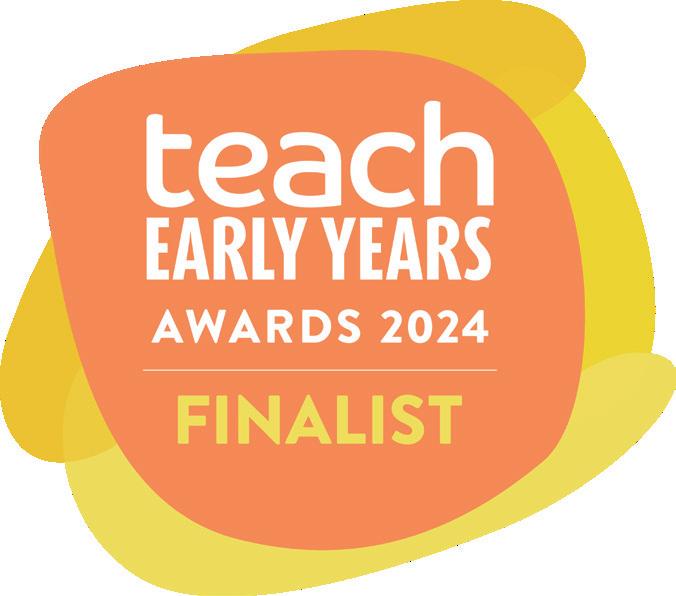
Beyond its award-winning resources, 1decision is also playing a pivotal role in advocating for greater emphasis on
personal development and life skills education. The organisation is a proud partner of Lessons4Life, a national campaign advocating for increased funding, training, and curriculum time for life skills education in schools. Additionally, 1decision is now offering a free personal development service for schools, further reinforcing its commitment to supporting educators and pupils across the UK.
As the year comes to a close, 1decision’s growing list of achievements highlights its impact on the education sector. Through its innovative approach and dedication to empowering children with the tools they need to navigate life, 1decision continues to set the standard for PSHE and personal development education.
Educators looking to enhance their provision of wellbeing and personal development resources can learn more about 1decision's offerings by visiting their website.
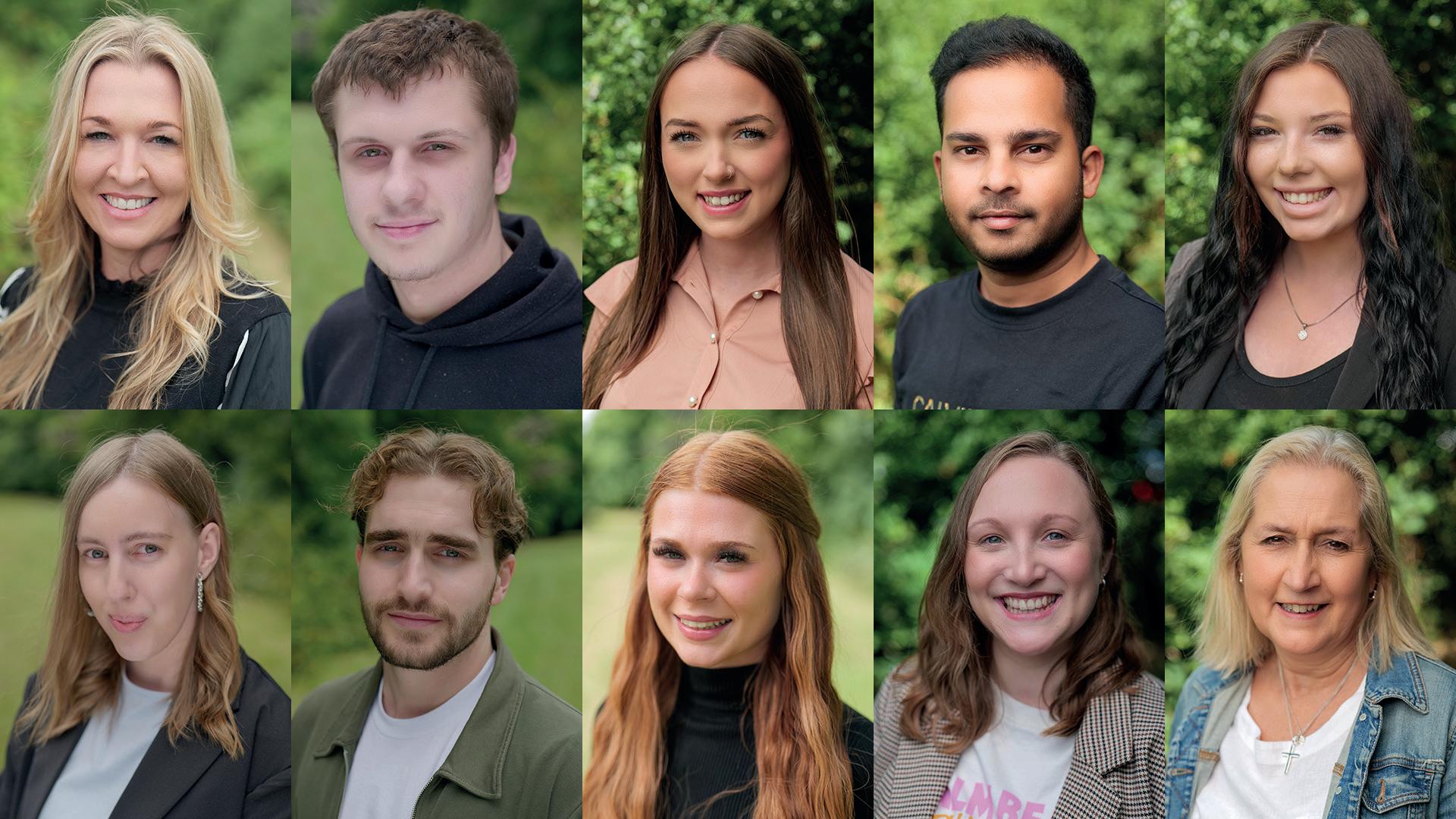
The
FOCUS team explores current UK campaigns for education reform and how to join us in shaping the future of education through collective action.
While some call it coincidence, we’re calling it perfect alignment. The DfE’s national consultation, running from 25 September to 22 November 2024, is seeking evidence on how to reshape the future of education. This review offers an invaluable opportunity for parents, teachers and pupils to have their say on how schools prepare young people for the world beyond exams.
Meanwhile, Lessons4Life - a grassroots initiative that launched in July - is gaining momentum. It calls on the government to place greater emphasis on life skills in the curriculum, and the petition is now live for those who want to add their support.
The timing couldn’t be better as – sadly - the need has never been greater. With society increasingly aware of the pressures young people face - from mental health struggles, financial challenges and community safety to the complexities of navigating a digital world - there is a clear need for reform in personal development education. Lessons4Life seeks to address these gaps, recognising that education is about more than test scores. It focuses on preparing pupils for life by teaching the tools to manage their health, relationships and finances, while also building their confidence and keeping them safe, both online and in their communities.
To support schools, Lessons4Life is offering free personal development assessments for Year 7 pupils until 15 November 2024. This multi-agency
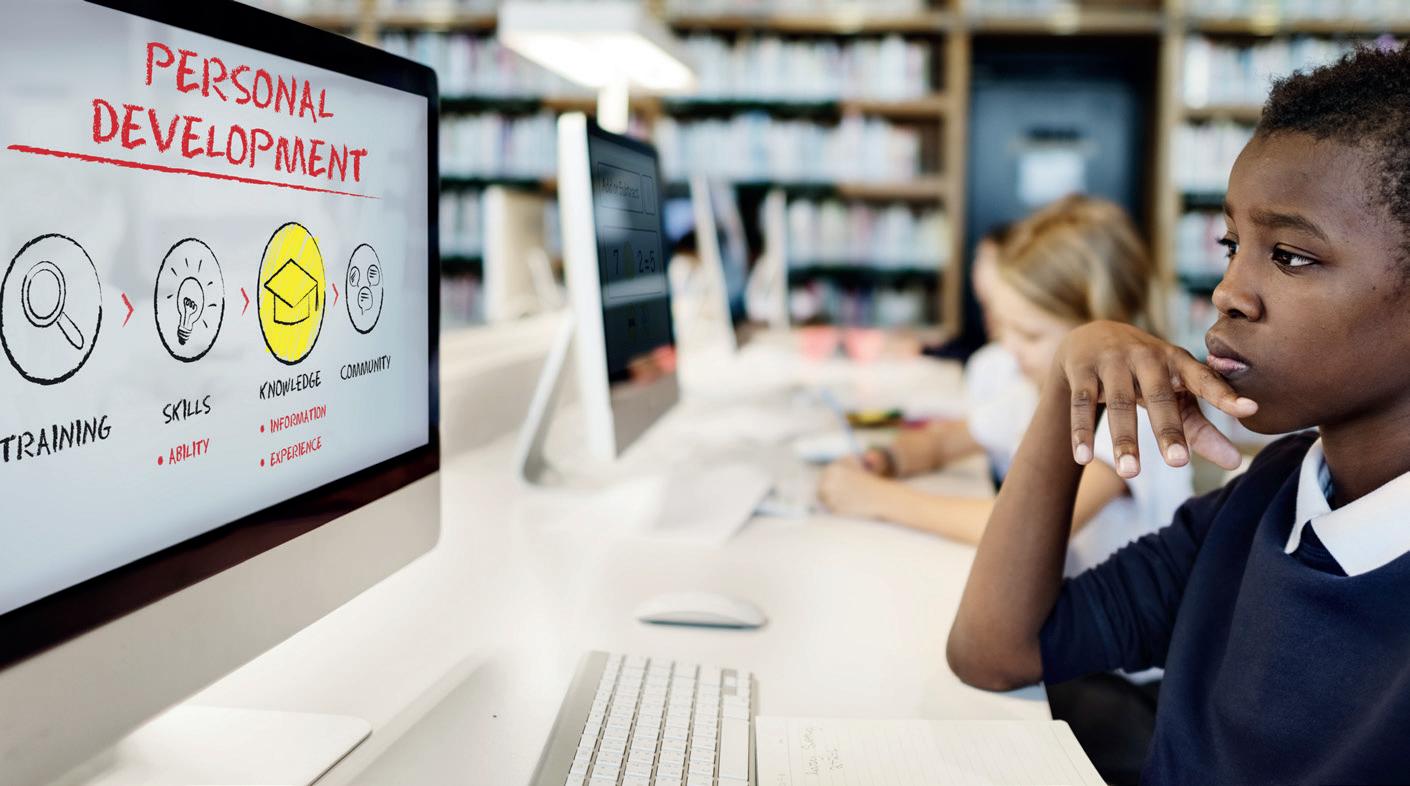
"It has always seemed so obvious that understanding children’s needs and organising relevant education is the beginning of answering many of society’s problems"
campaign provides access to personal development software. The assessments offer individual pupil reports that highlight personal development gaps to provide schools with key data to inform and enhance their PSHE lessons. Schools can access additional software to gather feedback from parents/carers regarding concerns at home or in the community.

By taking part and sharing anonymous data, schools will also help the campaign encourage the government to better prepare pupils for the transition to secondary school, including helping to secure more funding for primary schools. With just weeks left to participate, it’s an opportunity that can benefit both individual pupils and the broader education community.
Andrew Scott, 1decision Ambassador, fully supports the initiative: "It has always seemed so obvious that understanding children’s needs and organising relevant education is the beginning of answering many of society’s problems."
THE DfE CONSULTATION AND LESSONS4LIFE’S VISION

The DfE’s consultation calls for evidence to understand the current needs of schools and education, based on the views and life experiences of recent generations. We hope the views collected will align with Lessons4Life’s goals, marking the beginning of a significant shift in education that prepares future generations for the real world.
The DfE review will close on 22 November 2024. Following this, Professor Becky Francis and her panel of experts will analyse submissions, with recommendations expected in 2025. Although the outcome is still to be determined, it is crucial to encourage fellow teachers, educators, and policymakers to contribute and share their experiences.
Supporting Lessons4Life at this critical time means schools can take practical steps now by evaluating their approach to personal development and ensuring life skills are integrated into everyday lessons. To assist with this, the Lessons4Life Wellbeing Barometer is now live. This tool enables schools to track pupil wellbeing, providing educators with insights to make data-driven decisions that improve personal development programmes and help prioritise life skills.
See Gabrielle, Marnie and other pupils interviewing educational professionals via the Lessons4Life video above.
Coincidence or not, now is the time
for change. The alignment of public campaigns and government reviews is more than chance, it’s our opportunity to shape a better future.
By engaging with petitions and supporting such campaigns, we can help create an education system that meets the needs of the whole child, preparing them not just for exams but for life.

Here's how you can get involved:
Submit your evidence:
The DfE consultation is open until 22 November. [Have Your Say]
Support Lessons4Life:
Join us in advocating for a stronger focus on personal development within the national curriculum by signing the petition. Learn more about the campaign, follow Lessons4Life on social media and share your thoughts using the hashtag #Lessons4Life.
[Learn More] [Sign Petition]
Encourage schools:
Schools can sign up for free Year 7 personal development assessments and the Wellbeing Barometer until 15 November 2024. [Sign Up]
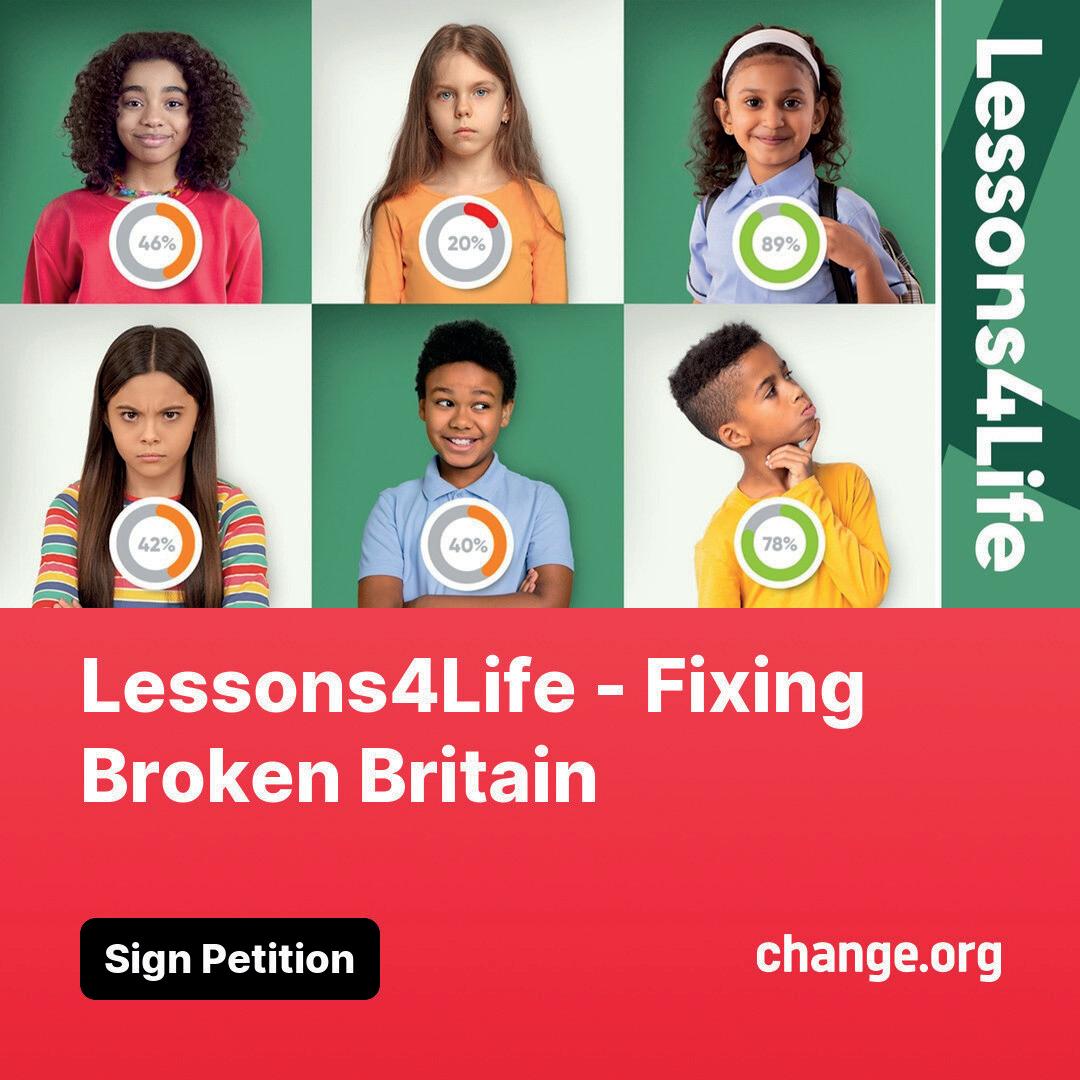
Rachael Down chats with Paul Wright to discover the story behind My BodyBoards and how his firsthand experiences are helping children engage with health education in schools.
Paul Wright’s passion for health education is deeply personal. The loss of close family to smoking-related cancer, along with his wife’s battle with ME, ignited his commitment to helping others lead healthier lives. This drove the creation of My BodyBoards, an interactive tool that transforms how children learn about their health.
For Paul, it’s not simply about delivering knowledge; it’s about imparting the wisdom that comes from visual and handson learning. With over 25 years in health education - first as a teacher, then moving into public health - Paul has developed resources designed to spark curiosity, critical thinking and engagement.
TAKE US BACK TO THE BEGINNING. WHAT INSPIRED YOU TO CREATE RSHE RESOURCES?
"It all started with personal experience," Paul reflects. "At a young age I lost both my mother and uncle within a week to cancer from smoking. Both were still young, aged 47 and 51."
"It spurred me to work in health education, first as a teacher then as an NHS Healthy School Award Coordinator. During this


time, I saw just how little knowledge kids had about their bodies. My wife, then suffering from ME had to leave her role at the local hospital. We decided to work together to create The Dangers of Smoking, the first-ever My BodyBoard in 2010." Over time, Paul and his wife expanded the range to cover topics like puberty, emotional health, and more. Today, My BodyBoards are used in schools across the UK to support PSHE.


HOW DID YOUR EXPERIENCE AS A TEACHER CONTRIBUTE?
"I can tell quite a few stories from that time… one was during the provision of free fruit in schools in Manchester," Paul recalls. "I found pupils as old as 10 trying to eat bananas without peeling them, or biting into plums without knowing the stone was in the middle. The level of misunderstanding about health was staggering."
"I also ran a stop-smoking service for teenagers. In one group, there were four teenage pregnant girls who smoked. One 15-year-old, after several failed attempts to quit, told me, ‘I smoked through my first pregnancy at 14 and he’s fine.’ These experiences shaped my approach - health education needs to be interactive and open for discussion."
HOW DO MY BODYBOARDS SUPPORT HEALTH EDUCATION?
"The main challenge I saw in schools was that children often struggled to connect with abstract health topics," Paul says. "They needed a way to see and touch the information to make it feel real. So we focused on creating materials that were
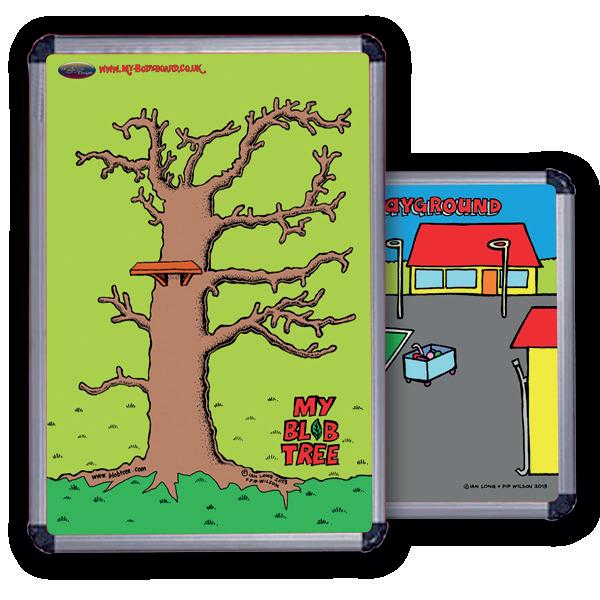
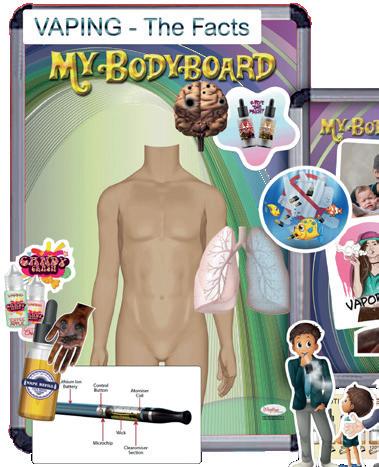
interactive and flexible."
"We use one magnetic board for all topics, which can be stood up and seen by the whole class," Paul explains. "Each magnetic pack focuses on a different RSHE/PSHE subject. The magnets illustrate specific health concerns or scenarios, allowing teachers to tailor their lessons to their pupils."
The resources use magnetic boards that cover a range of health-related topics, from puberty to substance abuse. These allow teachers to tailor lessons to the needs of their pupils, using interactive scenarios to bring the topics to life.
By allowing children to direct the conversation through images, discussions can feel less personal, which can then reduce embarrassment for both pupils and teachers. Such visual props and conversation starters can also help teachers prepare for sensitive questions and explain difficult concepts.
"We started with the big topics—smoking and alcohol. Then, we moved on to food as we were frequently asked for resources on that. More recently, with Relationship & Sex Education becoming more prominent, our Puberty Packs have been in high demand," Paul says. "Vaping

and contraception have also become top priorities as we try to stay relevant to the issues of today."
The interactive nature of My BodyBoards also helps develop critical thinking and emotional intelligence. Paul explains: "We have activities where pupils discuss topics in pairs or small groups before placing their magnets on the board and opening up the discussion to the class. This method helps them explore ‘what they would do’ if faced with situations like being offered an unknown vaping device, for example."
"If I had a crystal ball, I’d wish for health education to be fully integrated into schools, with a focus on preventative measures and life skills," says Paul. "We need to normalise talking about health from an early age - whether it’s physical or mental wellbeing. I’d love to see health education become more practical and hands-on, just like My BodyBoards, where children learn through interaction rather than passive listening."
Paul also emphasises the importance of broader changes:
"We are actively campaigning through the Children’s Alliance for an increase in school nurses to support health education in schools. Our petition calls for a school nurse in every school across the UK. We’re also pushing for a Junk Food and Social Media Tax to fund a comprehensive RSHE/ PSHE curriculum."
"The latest campaign, Lessons4Life, advocates for better integration of essential life skills into the primary school curriculum. These are crucial to children’s personal development and we want to close the gaps in education that currently exist."
Paul is a leading public health director with 25 years of experience focused on improving children’s health and wellbeing. A Fellow of the Faculty of Public Health, he develops educational resources, leads national campaigns and influences policy. Paul is currently Public Health Director at My BodyBoard and the Children’s Alliance.
• Children’s Alliance School Nurse Campaign: Support the call for a school nurse in every school
• Junk Food and Social Media Tax Petition: Sign the petition to fund children’s health
• Lessons4Life Campaign: Lessons4Life: Fixing Broken Britain

TO PURCHASE MY BODYBOARD Click here




BY HAYLEY SHERWOOD
Ensuring consistent PSHE teacher training across UK schools is vital for providing quality educational experiences for pupils and helping improve staff confidence.
Hayley Sherwood explores the challenges educators face and highlights the available support and benefits of adopting a comprehensive approach to whole-school training.
In schools across the UK, teaching PSHE (Personal, Social, Health, and Economic) education is essential for shaping wellrounded, informed and resilient young people.
From mental health to relationships, financial literacy to citizenship, PSHE plays a significant part in preparing pupils for life beyond the classroom. However, one of the most pressing challenges in delivering high-quality PSHE lessons is the disparity in teacher training across schools. This inconsistency in professional development can have a direct impact on the quality of education that pupils receive.
THE TRAINING DISCREPANCY: LEAD TEACHERS VS. CLASSROOM TEACHERS
For most schools, it is typically the PSHE lead who receives the most comprehensive and in-depth training. These PSHE leads are often tasked with a multitude of duties, from understanding the curriculum in detail and staying up to date with the latest government guidance to ensuring that the subject is taught in a way that is both engaging and effective. In many cases, the requirement for teaching PSHE expands to all members of the teaching and support staff. Classroom teachers, with no specific background or training in PSHE can feel unsupported or unfairly expected to deliver lessons to their pupils.
The reality is that after receiving their training, PSHE leads are often required to cascade this knowledge down to the rest of the teaching staff. For some, this ‘train the trainer’ model can prove problematic. PSHE leads, who are most likely already stretched with other responsibilities, may

not have the time or resources to replicate the high level of professional development they’ve received. As a result, classroom teachers may not gain the same depth of understanding or confidence to teach PSHE effectively, leading to a range of problems.
IMPACT ON THE QUALITY OF PSHE DELIVERY
Inconsistency in Results: One of the most noticeable outcomes of this discrepancy in training is the variation in the quality of PSHE lessons across a single school. When not all teachers are fully equipped with the necessary skills, knowledge and confidence, pupils may receive very different experiences depending on who is delivering the lesson. Whereas some classes may enjoy rich, engaging discussions about sensitive topics like mental health, others could miss parts that leave critical gaps in understanding. Such imbalances can mean that not all pupils are equally prepared for the challenges of modern life.
Varying
Competency: Teachers who are not adequately trained to teach PSHE may feel less confident when tackling complex or sensitive topics. It’s understandable that any seed of doubt can lead to a more rigid, lecture-style way of teaching, rather than the calmer and composed handling of open discussions to encourage authentic participation. When teachers are unsure of the subject matter or how to approach certain topics, pupils are potentially more likely to disengage, reducing the overall impact of the lesson. In contrast, teachers who are well-trained are more likely to feel empowered to handle challenging conversations, supervise debates and provide a safe space for pupils to express their thoughts.
Missed Opportunities for Holistic Development: PSHE is not just about imparting knowledge; it is about helping pupils develop the emotional and social skills needed to navigate the complexities of life. A well-trained and supported teacher understands the nuances of these topics and can adapt their teaching to meet the needs of different pupils to build empathy, resilience and selfawareness. Without proper comprehensive training, these opportunities for holistic development can be missed, and pupils may leave school without the vital tools they need.
Greater Pressure on PSHE Leads: With the current model, it’s clear that PSHE leads are under significant pressure to ensure that the entire team is on the
same page regarding the curriculum. Without sufficient time, resources, or structured support, this is a daunting task. As a result, PSHE leads could face burnout or frustration if the quality of lessons across the school does not meet expectations, despite their best efforts. This uneven distribution of responsibility places a rather unfair burden on PSHE leads, while potentially limiting the overall effectiveness of the subject across the school.
The solution to these challenges lies in a more comprehensive approach to PSHE teacher training. Schools must recognise the importance of equipping all teachers, not just the leads, with the skills and confidence they need to deliver PSHE lessons to a high standard. By investing in whole-school training, schools can ensure consistency in the delivery of the curriculum and create a school-wide culture that values PSHE as an integral part of every pupil’s education. Improved Pupil Outcomes: When all teachers receive the same level of training, pupils benefit from a consistent and highquality learning experience. They are more likely to remain engaged, informed and prepared for the complexities of adult life, as each teacher feels equipped to handle the subject matter effectively.
Greater Teacher Confidence: By ensuring that all staff members feel confident in their ability to teach PSHE, schools can create a more positive and dynamic

learning environment. Teachers who are prepared to address sensitive topics and adapt lessons to the needs of their pupils are more likely to create an inclusive classroom atmosphere where all pupils feel heard and supported.
Reduced Pressure on PSHE Leads: Whole-school training alleviates the burden placed on PSHE leads to train their colleagues. Instead, they can focus on supporting staff, refining the curriculum and putting measures in place to ensure that personal development remains a priority within the school’s wider goals. This approach also helps prevent burnout among leads, offering a perhaps more sustainable model for delivering PSHE.
Recognising the challenges faced by schools, 1decision has developed a comprehensive whole-school training portal to bridge these gaps.
The portal provides continuous professional development (CPD) opportunities to all staff members, ensuring that every teacher is equipped with the knowledge and confidence to deliver high-quality PSHE lessons. This digital platform supports schools in delivering consistent PSHE education across the board, reducing the reliance and pressure on a single PSHE lead to disseminate information and training to their colleagues.
1decision’s CPD portal offers a structured and accessible way for all teachers to receive a high level of training, thus helping to support the delivery of the same standard of excellence throughout the school.
Training only the PSHE lead in schools may create an uneven and challenging approach to teaching this critical subject. This disparity affects both teachers and pupils, leading to variations in lesson quality, teacher confidence and pupil outcomes.
We believe that shifting towards a wholeschool training model, and utilising resources like 1decision’s CPD portal can help schools further support their teachers and the effective delivery of PSHE.
11TH-15TH NOVEMBER 2024
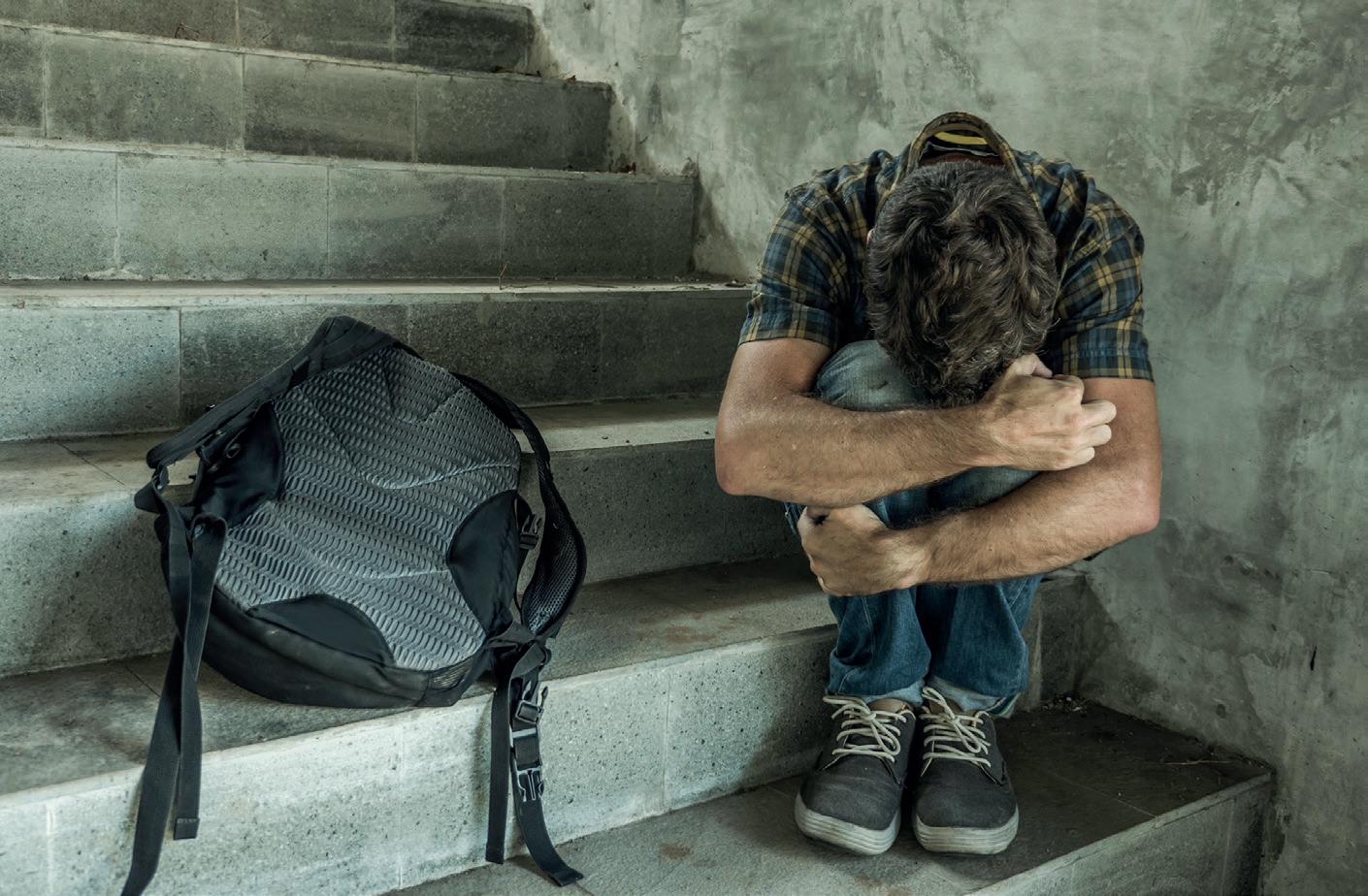
Awareness days in primary schools serve as windows to the world, expanding young minds beyond textbooks. They teach empathy, tolerance, and critical thinking by introducing pupils to diverse cultures, societal issues and global challenges. These occasions cultivate values like compassion and social responsibility, promoting a sense of community involvement. Awareness days also bridge the gap between classroom learning and real-world relevance, inspiring pupils to become informed,
active citizens. Ultimately, they play a crucial role in shaping well-rounded individuals who appreciate diversity, understand interconnectedness, and are prepared to make positive contributions to their communities and the world at large.
It is highly unlikely that schools will have the time or resources to cover every awareness day but here are some of the ones coming up over the next few months.

4th – 10th Children's Book Week 2024
6th – Stress Awareness Day
11th – Remembrance Day / Armistice Day
11th-15th Anti-bullying Week
CLICK HERE for FREE interactive assembly
13th – World Kindness Day
17th – 23rd – Road Safety Week
20th – World Children’s Day
3rd - International Day of People with Disabilities
8th – Christmas Jumper Day (this differs depending on the school as it typically falls on a Sunday) 10th – Human Rights Day
17th – 23rd – Energy Saving Week 20th – Martin Luther King Day 24th – International Day of Education
LGBTQ+ History Awareness Month
3rd – 9th – Children’s Mental Health Week
5th – World Read Aloud Day
11th – Safer Internet Day 14th – International Book Giving Day
14th – Valentine’s Day 17th – Random Acts of Kindness Day


Head to our catalogue for inspiration on how to celebrate... Click here


Reading On Your Head is designed to raise standards in reading!
Assign one of our online activities to a whole class in only a few clicks.
Get rich assessment data and determine exactly where to focus your time.
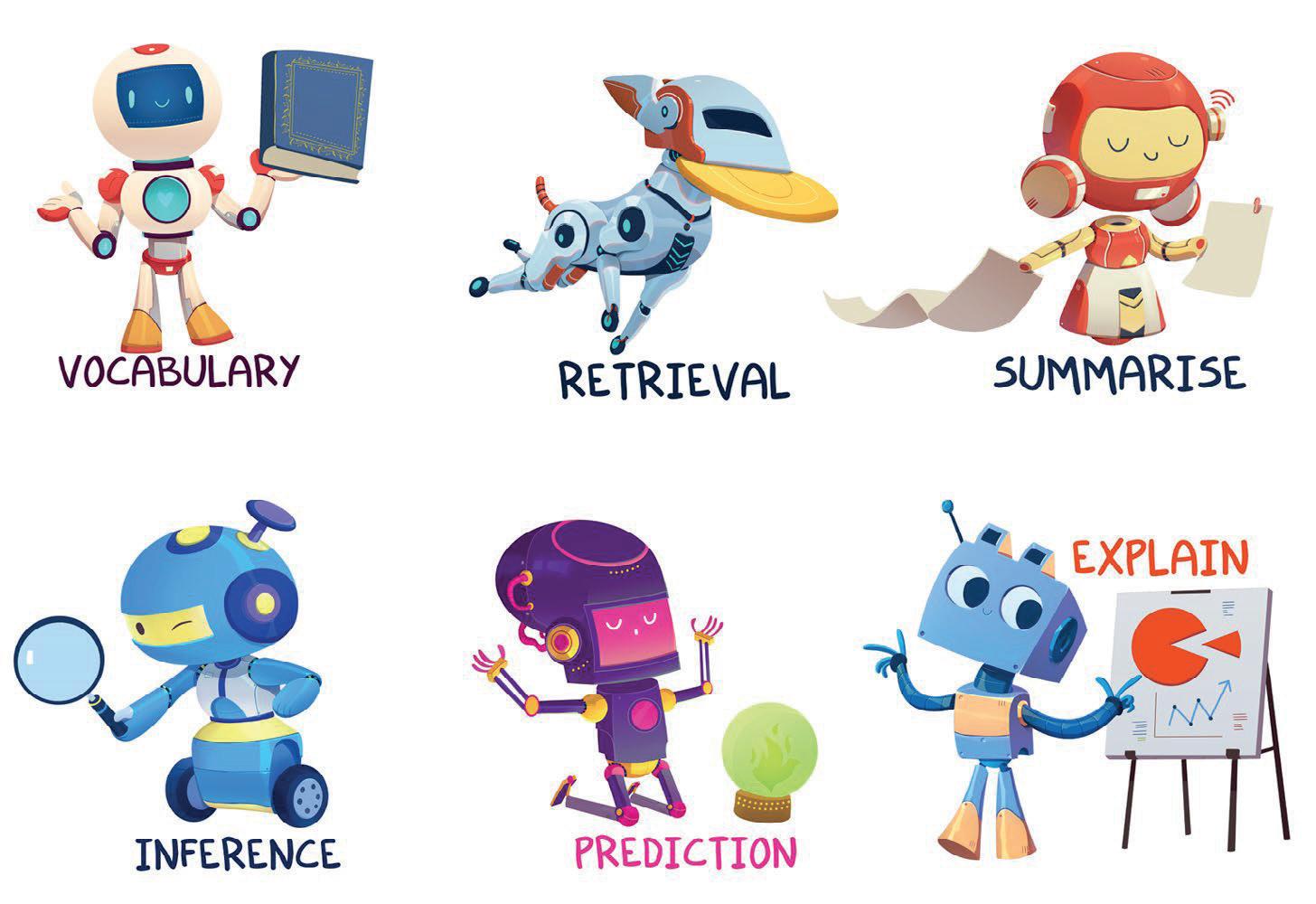
Resources are all online and can be printed. Our online quizzes are automatically assessed and instantly pinpoint exactly how well pupils are doing. Parents can access the same resources that are used in the classroom, allowing them to truly support with reading at home.
School leaders can effortlessly monitor pupil performance across reading content domains and quickly drill down from whole school level to individual pupil level.
As part of every subscription, we fully resource every text you use in reading.
Competition modes and quiz creation mode for pupils brings reading to life like never before and incentivises reading in a unique and engaging way. Get in touch and reboot reading in your school!
We believe in giving teachers time to teach!
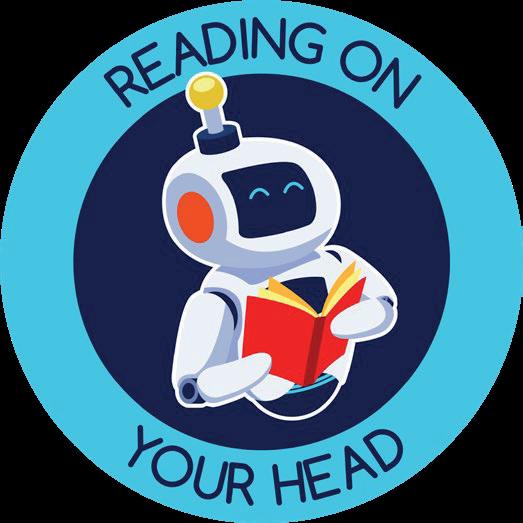
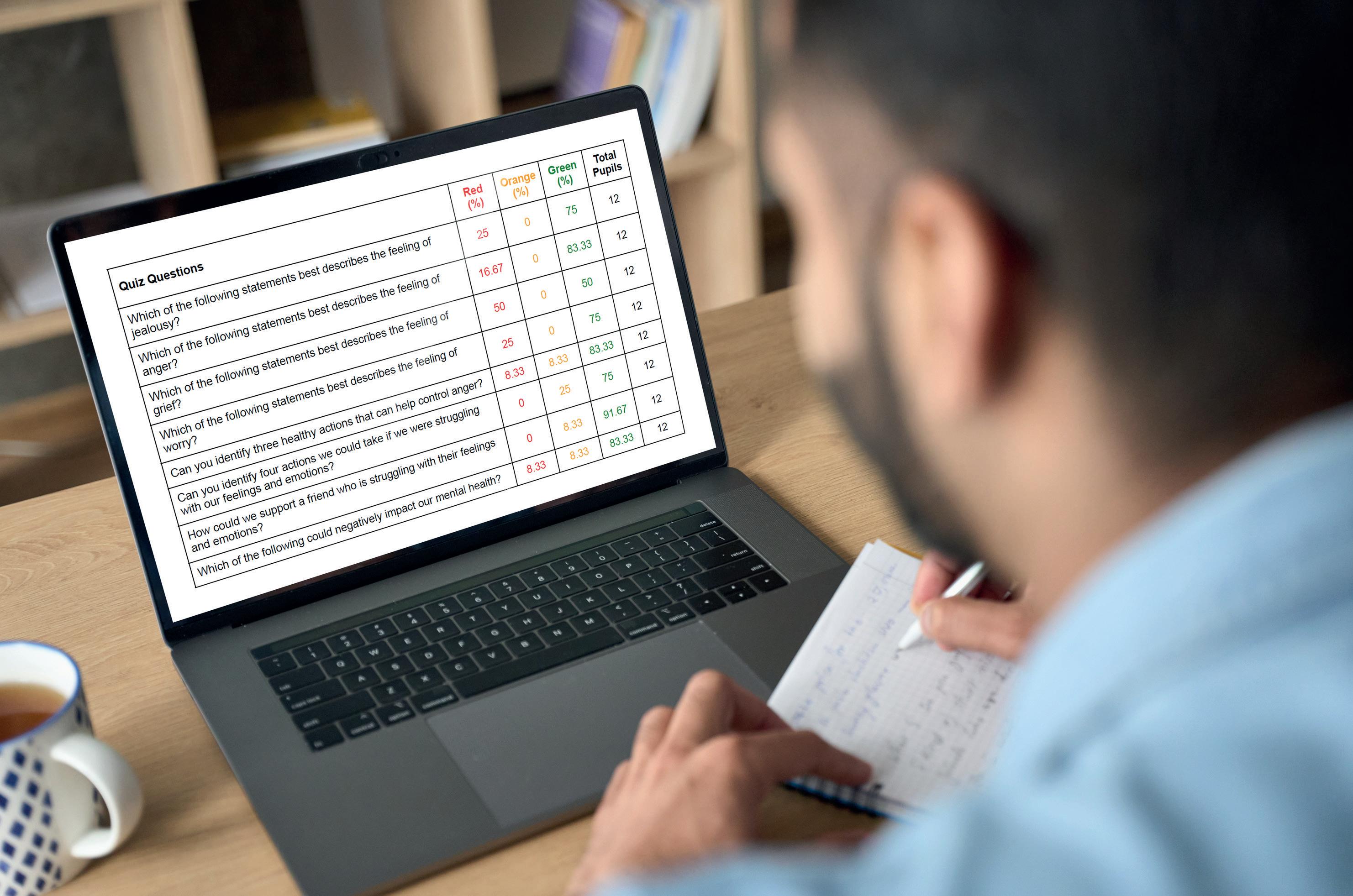
Personal development is becoming a central element of the curriculum across UK schools, and its importance cannot be overstated.
But how confident are schools in their delivery of this critical area?
Does your team have access to a PSHE/ RSHE programme, and if not, are they equipped with the time and tools needed to fully embed personal development into school life?
If you read our news section, you’ll also know that DfE’s RSHE Guidance Report (2024) highlighted the benefits of RSHE alongside the struggles teachers face. Whereas 85% of teachers agreed that RSHE prepares pupils for real-world experiences, one primary school teacher explained, "We are not just dealing with teaching—we are dealing with behaviour, medical issues, and so many different things at the same time."
"By looking at what’s working and where the gaps in knowledge lie, we provide a reflective and nonjudgemental way to make informed improvements in schools"
Given these challenges, many schools are searching for new ways to evaluate. And that’s why we’re highlighting our new Personal Knowledge Audit Service, to help primary schools effectively assess how

they are delivering personal development. By looking at what’s working and where the gaps in knowledge lie, we provide a reflective and non-judgemental way to make informed improvements in schools.
While PSHE education has long been part of school life, the introduction of statutory RSHE in 2020 put personal development in the spotlight. However, many schools still find it difficult to integrate these lessons across the wider curriculum.
According to SchoolsWeek who sat in on the Westminster Education Forum in September, Professor Becky Francis reiterated that "[RSHE and PSHE] are in our purview," emphasising the government’s focus on these subjects, despite their separation from the national curriculum.


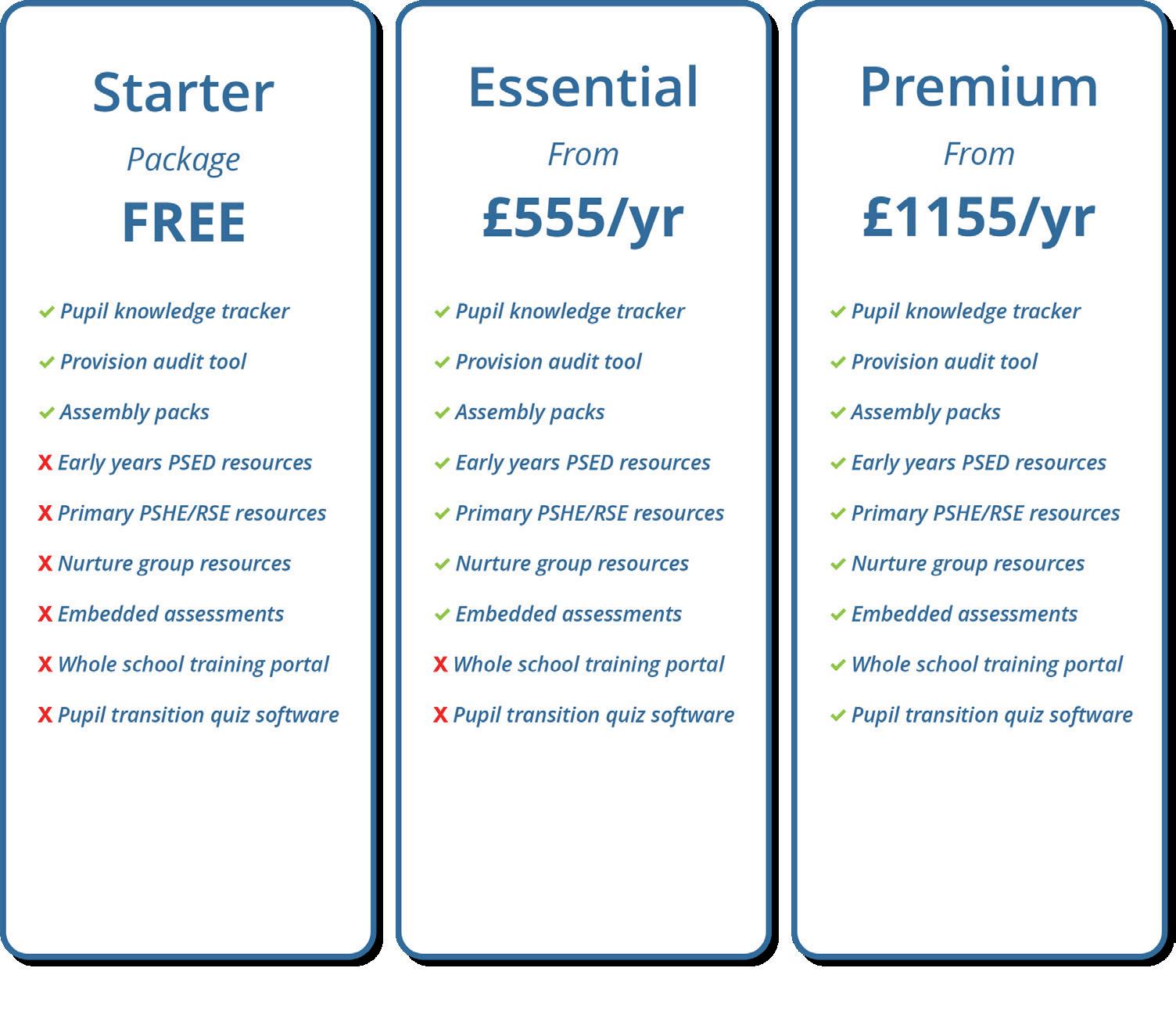
areas of strength and identifying gaps that require additional support. By addressing these, schools can better prepare pupils for their transition to secondary education.
Key features include:
• 2 x 25-minute personal development quizzes
• Cohort data for year group comparison
development and RSHE, schools have both the responsibility and opportunity to enhance how they deliver these crucial topics. The recent DfE’s findings on Relationships, Sex and Health Education identified the need for more consistency and quality in personal development education, especially as pupils face an increasingly complex world.
From what we hear, many teachers feel unprepared to deliver comprehensive RSHE lessons, and there’s little time or space for schools to successfully embed it. A Personal Development Knowledge Audit can quickly help schools assess what’s working and where improvements are needed, without the pressure of formalities, such as Ofsted.
The 1decision Personal Knowledge Audit is divided into two main parts: the Pupil Knowledge Tracker and the Provision Audit Tool. Together, they offer a complete assessment of pupil understanding and the effectiveness of personal development strategies in the school.
Designed for Years 5 and 6, this software assesses pupil knowledge, highlighting
• Detailed question analysis to inform future lesson planning
This helps schools evaluate their personal development offering through thoughtprovoking questions. It assesses areas such as leadership, delivery, sex education (if applicable) and overall provision, enabling schools to allocate resources efficiently and where they are most needed.
With results in hand, schools can create a clear and actionable plan. This should outline steps to address gaps, celebrate strengths and establish a cohesive approach to personal development across the school.
With greater emphasis on personal
As schools navigate these changes, our Personal Knowledge Audit Service offers a practical and reflective way to evaluate and improve how personal development is integrated into everyday learning. It empowers schools to understand their current position, target their efforts effectively, and ensure that staff and pupils are well-equipped to meet the demands of a rapidly changing society.
In the end, a personal knowledge audit isn’t just a tool for evaluation - it’s a path towards growth. By reflecting on what they know and where they can improve, schools can ensure that personal development is more than just a box to tick; it becomes an integral part of building the next generation of confident, capable young people.
To take advantage of this service, which is currently free click here:

Sophie Hearn, Education and Partnerships Advisor at 1decision,
explores the experiences of children in care and how storytelling can highlight the complexities of the social care system to drive change.
Growing up, I remember Jacqueline Wilson’s stories vividly. And it’s fair to say that throughout her career, she’s continued to tackle hard-hitting subjects. I also remember the excitement of rushing home from school to watch the TV series adaptation of one of her most impactful works, The Story of Tracy Beaker (published in 1991). While I knew it was fiction, it was my first exposure to the realities faced by children in care and it really struck a chord. Today, through my work at 1decision, I frequently come across statistics about the care system. In March 2023, for example, it was reported that 83,840 children were in care. That’s one in every 140 children. A few months ago, 1decision’s CEO, Hayley Sherwood, met broadcaster and author Ashley John-Baptiste at the Education Business Awards. Hayley was deeply inspired by Ashley’s compelling story about growing up in care and navigating the complexities of the system. Following her recommendation, I decided to read his memoir too.
"Ashley’s openness allows readers to understand the harsh realities of life in the care system"
MY TAKE ON LOOKED AFTER: A CHILDHOOD
Since Ashley is only a few years older than me, I was eager to dive into his story and better understand how a child growing up in the 1990s navigated such a different path through childhood. It took me just two days to read and I have never felt so many emotions from a book before. I laughed, teared up, felt angered at times - but also hopeful - while learning

about Ashley’s journey from entering care to leaving as an adult and navigating society.
His story often made me forget I was reading a real-life account, not a fictional narrative like Tracy Beaker. Ashley’s openness allows readers to understand the harsh realities of life in the care system. He introduces us to characters like Joyce and Myles, who had a profound impact on his life, showing that, despite his background, there were people who truly cared for him. Myles, in particular, helped Ashley get back into school, reminding us of the power of positive role models.
As I read about Ashley’s constant movement between social workers, schools and foster homes, it was heartbreaking to imagine how isolating and unstable life must have felt for him as a child. The sheer number of people who entered and exited his life before he even reached adulthood was staggering. It made me reflect on the critical need for stability in a young child’s development.
I don’t want to give too much away for those who may wish to read Looked After
but I highly recommend taking the time to discover Ashley’s story. While I will never be able to resonate with the real experiences a child in care will go through, I have used the story as a tool to reflect on my own childhood and the relationships I had growing up.
I believe, as Ashley himself states: "You don’t have to be a parent to positively impact a child. Teaching, mentoring and community work all make a huge difference to an individual, and as a result, to society."
Ashley’s career as a broadcaster and author has given him a platform to amplify the voices of looked-after children, sharing his experiences on a prominent scale. You can listen to Ashley’s episode on the Happy Place podcast shown below.
BEING THE CHANGE WE WISH TO SEE
Storytelling has the unique power to inspire action, opening our eyes to the lives of others in ways we might not experience firsthand. Ashley’s memoir, Looked After, is a profound example of how one person’s story can highlight systemic issues while also empowering us to make meaningful changes in the world around us. Through his account, Ashley invites readers to reflect on how we can all play a part in supporting and uplifting vulnerable children, even if we haven’t experienced those challenges ourselves.
At 1decision, we believe that stories like Ashley’s can ignite the desire to create a better world, encouraging each of us to ‘be the change we wish to see.’
Whether it’s creating engaging resources and programmes to support personal development teaching, campaigning for
"I’d been writing children’s books for a while, but they had mostly disappeared without a trace. One day, I saw an advert for foster children – with photographs of them. I was taken aback by this whole page of children smiling rather desperately, and I couldn’t help thinking: ‘What a horrible thing, to see these children advertised like this.’ That’s when I realised I could write about one of these kids, because I could imagine how it must feel. Almost immediately, this feisty little girl came into my head, and Tracy Beaker was born."
Jacqueline Wilson, Author
change in education or providing stability for a child in need, these acts of care have the potential to make a lasting difference. This message deeply resonates with our CEO, Hayley Sherwood, who has been a foster parent for the past 14 years. Her own experience with the care system, combined with her time spent working in education, continues to fuel her passion for introducing personal development skills to children at an earlier age.
"At 1decision, we believe that the aspirations of every child should be limitless. Every child deserves the opportunity to reach their full potential", says Hayley.
"Through our work, we hope to empower children to engage in open conversations

and make informed choices in a safe environment. With the support of school leaders and committed individuals, I am confident we can help children embrace this mindset."
By sharing stories like Ashley’s and championing positive role models, we can inspire others to take action and build a future where every child feels supported and valued.
"Teaching, mentoring and community work all make a huge difference to an individual, and as a result, to society"
Sophie has been an Education and Partnerships Advisor at 1decision since 2021 and supports schools, as well as networking with like-minded organisations and individuals. She is passionate about inspiring and educating the next generation, shaping their future for the better. 1decision at a time! sophie@1decision.co.uk

Lessons4Life are urging all education professionals to sign the petition and help the team reach Westminster with a voice. This voice aims to encourage the government and DfE to increase support and help schools feel better prepared to teach and assess personal development related topics.
4 KEY FINDINGS FROM DFE’S RSHE REPORT 2024
"If I am not sure about anything, I would ask [the coordinator]… the workload does not give you time to read anything! We are not just dealing with teaching—we are dealing with behaviour, medical issues, and so many different things at the same time." – Primary school teacher, special school, DfE RSHE Guidance report, Sept 2024. We get it. Rest assured that if you feel like the teachers from DfE’s RSHE report findings, you’re not alone. With 8% of teachers admitting they hadn’t even had time to read the RSHE curriculum, we thought we’d prove we’re listening with a super short round-up. Here’s 128 pages condensed into 4 key findings from the latest report, which examines the implementation of 2020 RSHE guidance in primary schools.
Published in September 2024, the report findings show these challenges for teachers:
• Too little space or time: Teachers often feel there’s no space to integrate RSHE effectively into their already overpacked schedules. "They bring out paper after paper saying, ‘you have to teach this,’ but they don’t give you more time in the day." - RSHE coordinator
• Cascade model consequences: In many schools, teachers rely on coordinators to pass on key RSHE information. This approach leaves some gaps in understanding and engagement with the guidance.
• Confidence and training: More than 11% of teachers reported they were either ‘not very confident’ or ‘not confident’ when teaching mental wellbeing, basic first aid and sexual health. In relation to the guidance, a teacher says: "It tells us what you have to cover, but it doesn’t tell you how to cover things."
• Resource shortages: 21% of teachers said they didn’t have access to sufficient high-quality resources to deliver RSHE lessons effectively. Despite these obstacles, 85% of teachers agree that RSHE prepares pupils for real-world experiences and 81% think it equips pupils for the future. Overall, the report finds that the impact of RSHE is positive in primary schools, with improvements recorded in pupils’ ability to communicate, build healthy relationships and discuss their feelings. You can find the full report.


OFSTED’S FINDINGS FROM THE BIG LISTEN 2024: The Big Listen, which closed for submissions on 31 May 2024, gathered feedback on the priorities and challenges in education and care. Findings published in the October 2024, reveal that many respondents felt Ofsted’s inspections were too stressful, inconsistent and punitive. Receiving over 16,000 responses, the consultation includes feedback from teachers, senior leaders and parents/carers. While suggested changes to Ofsted’s approach, including removing single-word judgments for schools made the main headlines - in terms of PSHE - the findings emphasise the importance of nurturing social and emotional development in Early Years alongside academic progress. Respondents also stressed the need for separate safeguarding inspections and a more supportive approach to staff wellbeing during inspections.

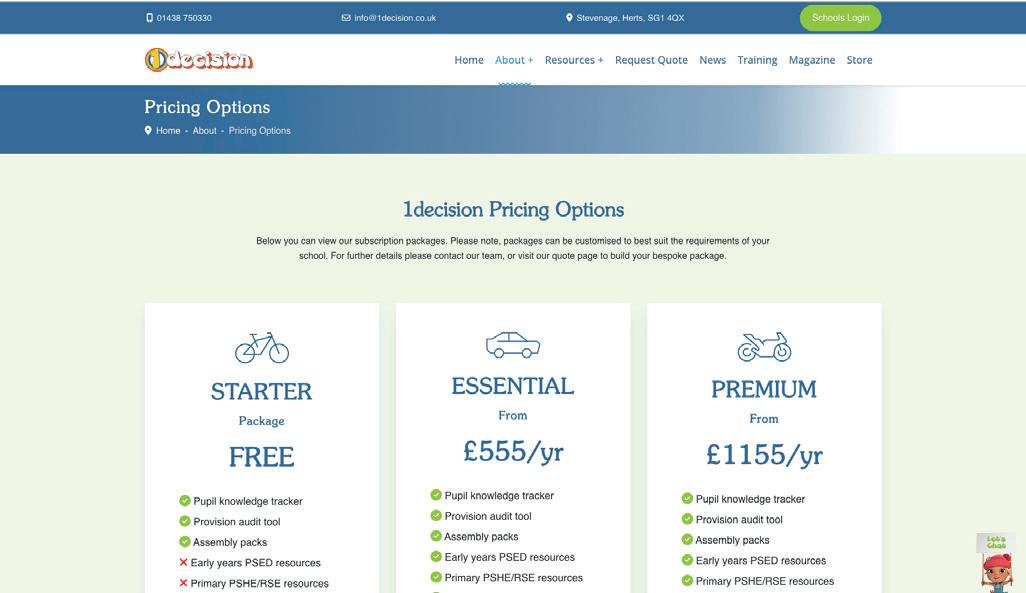

IS YOUR PSHE/RSHE PROGRAMME MAKING A DIFFERENCE?
Out Now! Complementary Personal Development Audit Service
Introducing 1decision’s Pupil Knowledge Audit Service – the ideal solution for quickly and effectively understanding if your school’s provision can enhance children’s personal development knowledge before pupils transition to secondary education.
Access for free:
2 x 25-minute interactive personal development quiz
Cohort data for year group comparison
Detailed question analysis to help inform future lesson planning
Provision audit tool
Bonus content: Over 20 assembly packs!
EXTRA DATES ADDED TO DISCONNECT TO RECONNECT
In March 2024, The Health & Wellbeing Service, Leeds City Council, and the Be Device Wise Programme launched the "Disconnect to Reconnect" week, inviting schools across Leeds to participate. Over 5,000 children and young people joined, making it a great success. Now, the partners are excited to announce two additional weeks for the next academic year: 10th–14th March and 9th–13th July 2025.
Dr. Charlotte Armitage, psychologist and psychotherapist, shared her expertise on the effects of increased device use on children’s social development, explaining how it limits essential skills like conflict resolution and relationshipbuilding. Based on her research, Charlotte developed No Phones at Home Day and Be Device Wise to help families consciously turn off devices and engage in meaningful activities.
During the "Disconnect to Reconnect" weeks, children are encouraged to connect with family and friends through screen-free activities, enhancing their mental health and wellbeing.
Participating schools are invited to track pupil engagement, the activities they choose and any impact observed. For those schools who would like to find out more, please email schoolwellbeing@leeds.gov.uk
HAVE YOU JOINED?
DFE’S NATIONAL CONVERSATION: SHAPING THE FUTURE OF EDUCATION
The DfE is calling for evidence regarding how the curriculum and assessment system can better prepare our future generations. Educators, parents/carers and pupils are encouraged to provide feedback during an eight-week consultation, which offers a unique opportunity to help influence the direction of RSHE, PSHE and other lifeskills subjects in schools. You have until until 22 November 2024 to join the national conversation. If you can, we urge you to speak your truth with us.

In March 2024, The Health & Wellbeing Service, Leeds City Council and the Be Device Wise Programme, launched their innovative project, 'Disconnect to Reconnect' week, and invited schools across Leeds to participate.
Over 5,000 children and young people joined, making it a great success. The partners are therefore thrilled to announce that two further dedicated weeks have been added to the schedule for the next academic year: 10th – 14th March and 9th –13th July 2025.
Dr. Charlotte Armitage, a psychologist and psychotherapist with expertise in psychodynamics and child development, discussed issues surrounding the increasing dependence on smart devices by children and young people during training she delivered in Leeds earlier this year. She explained how, from a young age, children learn social norms, conflict resolution, tolerance of differences, and relationship-building skills through direct engagement.
However, the increasing use of devices is harming the development of these skills, as children often prefer screen time over playing with friends, which negatively impacts their social interactions at school. Based on Charlotte’s extensive research in this area, she has created, No Phones at Home Day and Be Device Wise to encourage parents and children to consciously turn off their phones, iPads, and other devices to engage in activities that foster connection. As adults, we all know the frustration of being ignored in favour of a device, and we cannot underestimate the impact this behaviour has on our children’s sense of worth and wellbeing.


During the ‘Disconnect to Reconnect’ weeks, children will be encouraged to engage in alternative activities at home instead of using their devices. Leeds’ wellbeing team hopes this will help kids not only connect more with their friends and families, but also observe the positive impact on their mental health and wellbeing.
Children can either come up with their own creative ideas and share them with the class, or click here for activity ideas: ACTIVITIES - No Phones At Home
Day Throughout the week, staff could also discuss with children what they did instead of using a device and how it made them feel.
The team are keen to understand: how many schools participate in the weeks, the activities children engage in, and the impact they feel it has made.


Please let them know if your school will be taking part in any of the weeks so they can contact you afterwards to gather feedback. If you plan to take part, please email schoolwellbeing@leeds. gov.uk
Dr Charlotte provides a summary of the impact devices can have by age:
Age 0 - Attachment to primary care giver.
Age 0+ - Eyesight.
Age 0-2 - Development of pincer grip.
Age 0-4 - Development of language skills, ability to regulate emotions.
Age 3+ - Development of confidence, self-esteem and self-worth.
Age 2+ - Movement and activity levels.
Age 4+ - Ability to process and regulate emotion. Interpersonal skills, academic performance, confidence.
Age 8+ - Development of interpersonal skills, our identity, beliefs and attitudes about the world and others.
Discussions around PSHE don't just take place in the classroom. Take a look at the Facebook groups below and have your say!
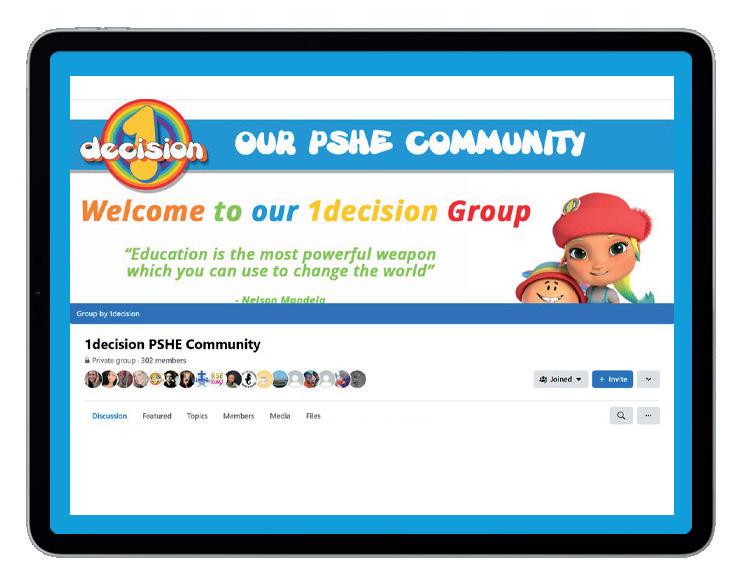
A place for 1decision subscribers and non-subscribers to share ideas, be part of discussions and receive updates. Most importantly, we support you in providing the highest quality lessons across your educational setting.
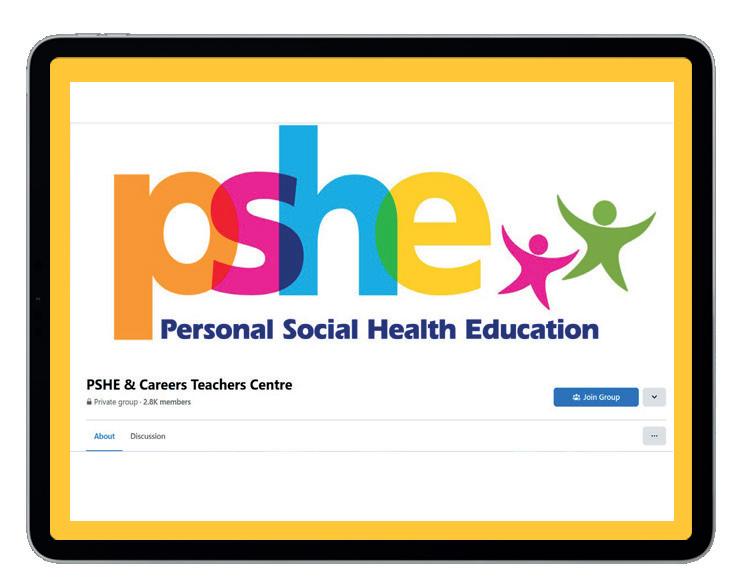
A group for PSHE teachers and providers to share good practice, resources and support. We aim to create a bank of school friendly resources and use the discussion forum to link with other teachers across the UK to share ideas and gain inspiration.
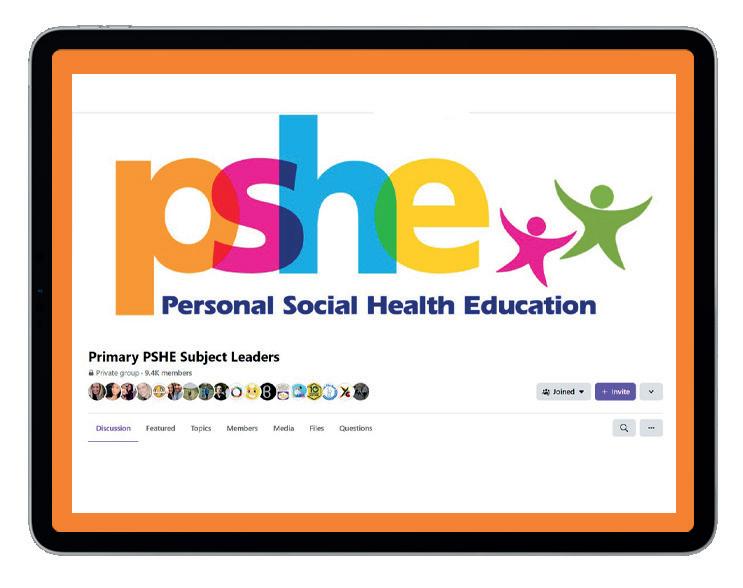
A place for PSHE coordinators within primary schools to share ideas to improve the teaching and learning of PSHE. We also welcome those with a passion for PSHE, or those who have businesses which relate to the teaching of PSHE.
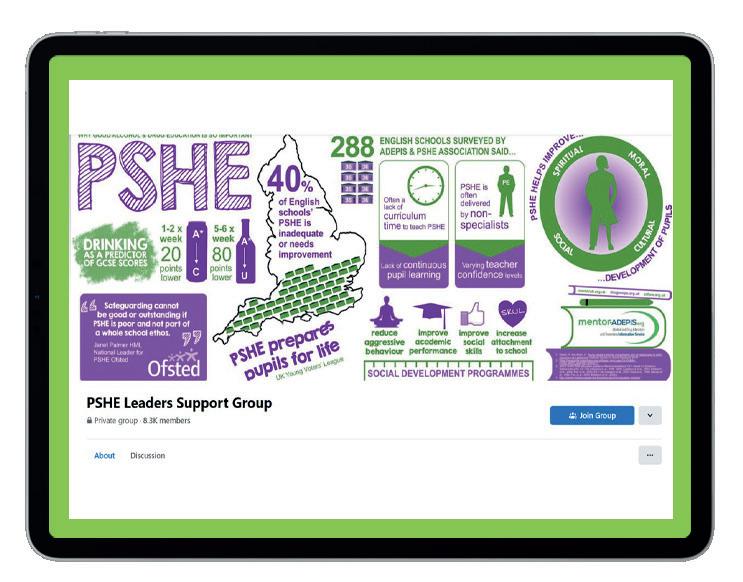
This is a page for PSHE leaders to share good practice and support each other.


As schools across the UK increasingly seek innovative ways to engage young learners in PSHE, 1decision’s programme is helping bridge the gap between theory and practice for trainee teachers. Sophie Hearn, Education and Partnerships Advisor at 1decision, speaks with Helen Benson from the University of Winchester to understand the impact of this collaboration.
The University of Winchester, situated in Hampshire, hosts around 8,000 students and 900 staff, earning acclaim for its transformational approach to education. This year, its primary and secondary teacher training programmes were rated ‘Outstanding’ across the board by Ofsted, and the university recently ranked sixth in the UK for full-time employment and further study, according to the 2023 Graduate Outcomes Survey from HESA.
It all started when former Senior Lecturer Matt Prince discovered 1decision while researching classroom resources. Intrigued by its inclusion of Early Years materials, he shared it with fellow Senior Lecturer Helen Benson, who recalls:
"This is the first scheme we have used at the university, and it is proving to be very successful"
"What we both liked about the scheme was the inclusion of Early Years. Often, schemes run from Year 1 to Year 6, leaving Early Years teachers to create their own materials. This was useful as we have a group of Early Years specialists from Year 2, so we were able to tailor sessions specifically to them straight away by using the materials."
The university’s Institute of Education, who provided the Primary Education with QTS course, were looking for resources to integrate into PSHE seminars and help

evidence the gap between theoretical learning and practical experience. Helen notes:
"This has been really important, as students often view the campus-based learning as theory and don’t make the links to what is happening in the classroom. By using 1decision, we have been able to create those links more explicitly. This is the first scheme we have used at the university, and it is proving to be very successful."
The integration of 1decision’s resources has brought enthusiastic responses from Winchester students, evidenced by over 100 positive comments in termly feedback sessions. Helen shares: "Students have mentioned other schemes in seminars, but what they preferred about 1decision was how up to date the content was and its relevance to the children. They could see how children would engage with the materials because the resources were carefully considered for different age groups."
Student feedback highlights the programme’s success in engaging learners:
• PGCE Primary Initial Teacher Education 3-7 with QTS Student: "Resources for EYFS cover a wide range of topics and could act as a prompt for discussion but are also simple enough for children to explore independently."
• Year 2 BA (Hons) Primary Education with QTS Student: "Really well-thoughtout resources with lots of content to choose from. I think the interactive videos are a really good feature to keep the children thinking and focused."
• PGCE Primary Initial Teacher Education 5-11 with QTS Student: "A good way to support planning of PSHE with age-appropriate resources including various activities and slideshows. Would definitely use in a school to support PSHE teaching."
In one class, a student used 1decision resources in a PSHE lesson during a job interview, receiving praise for how he
connected the content to children’s needs. Helen shares: "He was offered the job, which was a fantastic endorsement of 1decision’s approach."
When asked if she would recommend 1decision to other educators, Helen answered: "It is a complete package of resources that can be used and adapted where necessary. The materials are kept up to date, which is so important today as we need to engage children in their learning. If they do not see the relevance, they will become disengaged. 1decision is constantly updating the website and adding new features, making it easy for us to show students and teachers in schools."
It’s fair to say that the University of Winchester is making a huge difference in equipping a new generation of teachers
with the tools to make a real difference. I’ve personally found it exciting to work with the university and support them in implementing 1decision’s resources. Helen and Matt have both shared our values and common goal, and the feedback has helped the team to understand the needs for developing our resources going forward. It’s fantastic to think of the impact these new PSHE teachers will have on the children they inspire and the schools they work in.
A special thanks to Helen, the University of Winchester, and all educators who are using 1decision resources to equip the next generation with essential life skills. If you or your school are seeing positive results with 1decision, reach out to me directly via sophie@1decision.co.uk to share your story.

As this goes to press, we’re halfway through ADHD Awareness Month - and yes, the irony of our timing isn’t lost on us. A little behind schedule? Or just in time? In the spirit of embracing the moment, we caught up with Hayley Sherwood, CEO of 1decision, to discuss her own ADHD journey and how it continues to drive her passion for supporting primary school PSHE and personal development.
Hi Hayley, thanks for joining us. Could you start by explaining to our readers about your ADHD journey…
WHEN WERE YOU FIRST DIAGNOSED, AND WHAT WAS THAT EXPERIENCE LIKE FOR YOU?
Since birth, I’ve never been able to sit still or stay quiet. My brain is constantly juggling multiple tasks - I need to move around or I just don’t feel comfortable. That could mean typing on the computer, tapping my foot, talking on the phone, and flicking through a book all at once!
I always knew I was a bit different, so my diagnosis wasn’t a surprise. When I was 13, after numerous tests, I was told I had hyperactivity - it wasn’t called ADHD back then. My mum chose the homeopathic route and certain dietary changes really helped reduce my symptoms.
WHAT ARE SOME OF THE BIGGEST CHALLENGES YOU FACE DAILY BECAUSE OF ADHD, AND HOW DO YOU MANAGE THEM?
Concentration is a huge one. My mind constantly wants to jump to the next thing. I thrive on new projects - my brain really kicks into gear when things are exciting! I rely on ‘finishers’ in my team because I struggle to stay focused on tasks once the initial thrill is gone.
Managing my impulsiveness is another challenge. My team often needs to remind me, "No!" when I try to start something new. I also need to be strict with my diet and sleep. Too much sugar or caffeine can throw me off, and I need a solid 7.5 to 8 hours of sleep to function properly.
HAVE THESE CHALLENGES SHAPED HOW YOU DESIGN PROGRAMMES TO SUPPORT CHILDREN WITH SIMILAR EXPERIENCES? Absolutely. Visual engagement is key. When I was in school, teaching was primarily auditory, which I struggled with. That’s why I wanted to ensure that 1decision resources focus on visual and kinaesthetic methods too. It’s encouraging to hear feedback about how engaged pupils are while using our programme.
ARE THERE ANY MISCONCEPTIONS ABOUT ADHD THAT YOU WISH MORE PEOPLE UNDERSTOOD?


Yes, people often see ADHD as a disability or think children with ADHD are less capable. But if we can help children understand how their brain worksparticularly the prefrontal cortex - they can learn to view it as a superpower. Unfortunately, not all mainstream classrooms are equipped to support children who need different types of assistance.
HOW DO YOU THINK SCHOOLS AND TEACHERS CAN ADDRESS THESE MISCONCEPTIONS?
Schools could benefit from more support to help them adopt a more flexible approach. The traditional model of sitting still for hours doesn’t work for many children, especially those with ADHD. Teachers and school leaders need to create environments where neurodiverse children can thrive by giving them the freedom to move as well as offering immersive and engaging learning tools.
CAN YOU SHARE A SPECIFIC MOMENT WHEN ADHD SIGNIFICANTLY AFFECTED YOUR LIFE IN AN UNEXPECTED WAY?
A key moment was when I recognised my children had similar traits and I began to look at ADHD with a different view. It wasn’t just me now; it’s about how it affects my kids.

It made me question how I can help them accept it as a part of their genetic make-up, and how can I help them frame this as a positive rather than a negative trait. This wasn’t a challenge I was prepared for.
WHAT STRATEGIES OR TOOLS HAVE BEEN MOST HELPFUL IN MANAGING YOUR ADHD SYMPTOMS?
For me, it’s all about sleep, diet and lists! I constantly do ‘brain dumps’ to clear my head of all the whirling thoughts. I’ve also built a team with diverse skillsets to help me achieve the goals for the business.
HAVE YOU DISCOVERED ANY SURPRISING STRENGTHS BECAUSE OF YOUR ADHD?
Yes, I can multitask like no one else - I can literally do four things at
once! I also thrive under pressure and can quickly assess situations, which is a real advantage in the super-fast-paced world of education.
HOW HAS YOUR PERCEPTION OF ADHD CHANGED OVER TIME, FROM BEFORE YOUR DIAGNOSIS TO NOW?
Massively. Growing up, I was always made to feel like ADHD was a disadvantage. But now, I see it as a strength when managed correctly. It allows me to do things others might find difficult. It also keeps me on track with self-discipline, especially when it comes to sleep and diet.
WHAT ADVICE WOULD YOU GIVE TO A PARENT OR TEACHER OF A CHILD WHO HAS JUST BEEN DIAGNOSED WITH ADHD?
It’s about finding what works for the individual. Every child is different, and it’s important to experiment with tips and tricks that suit their needs.
Let’s take emotional regulation as an example. For one child it may be helpful to write their thoughts down to work through difficult times, for another child it could be more beneficial to take part in a fast-paced sports session. Every child is unique and will often need to try a number of different strategies to discover what works best for them.
WHAT DO YOU THINK SOCIETY CAN DO TO BETTER SUPPORT INDIVIDUALS WITH ADHD IN SCHOOLS, THE WORKPLACE AND DAILY LIFE?
We need to help children understand how their brains work from a young age. Classrooms could work better for today’s children, especially neurodiverse kids. Gone are the days when all children can sit still for long periods of time. Some schools are managing this well, but there’s still a long way to go.
WHAT WOULD YOU SAY TO PARENTS AND TEACHERS ABOUT RECOGNISING ADHD IN YOUNG CHILDREN AND HELPING THEM DEVELOP SKILLS TO MANAGE IT EARLY ON?
For me, nutrition is key. Some foods can exacerbate ADHD symptoms, especially sugar-heavy cereals, which aren’t great for any child. I know from my own experience how significantly nutrition can impact those with ADHD.
HOW DO YOU THINK EARLY INTERVENTION CAN CHANGE A CHILD’S FUTURE, AND HOW DOES 1DECISION ADDRESS THIS?
I believe children will benefit from understanding their individual brains and from there, can become more comfortable with who they are. Early intervention can help them see ADHD as a strength, not a weakness.
At 1decision, we focus on supporting children to develop life skills and help equip them for their future. We are also a partner for the Lessons4Life campaign. CLICK HERE to sign the petition. For further information and support on ADHD in primary schools, including helpful resources and guidance, visit the ADHD Foundation.
Hayley has over twelve years of experience in the PSHE field, with a long history of supporting primary schools to reach 'Good' and 'Outstanding' for Personal Development. Through 1decision, she has successfully produced an awardwinning series of books and resources for Early Years and a whole-school primary PSHE programme, which held the PSHE Association quality-assured kitemark for over a decade.
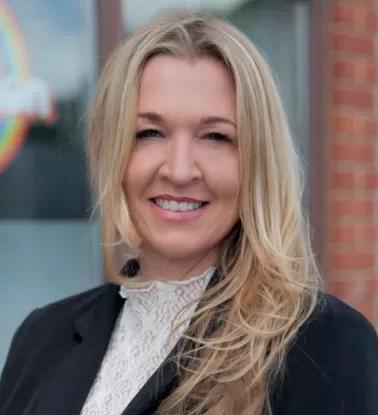
We spoke to Diane Hull, retired Early Years Head and author of Be Happy to Be You, to explore why teaching children to embrace their uniqueness is vital for their personal development and lifelong happiness.
Diane shares with us the damaging effects of comparison culture on children’s selfesteem and mental health. Her debut book encourages young readers to accept themselves wholeheartedly - just as they are.
WELCOME DIANE. AS A RETIRED PRIMARY TEACHER AND HEAD OF EARLY YEARS, HOW DO YOU THINK WE CAN ALLEVIATE THE PRESSURES CHILDREN FACE TO CONFORM OR COMPARE THEMSELVES TO OTHERS?
"From the moment children are born, they are compared. ‘Walked at 9 months,’ ‘knows the alphabet,’ ‘a great runner,’ we hear these things all the time. But what we don’t always realise is how these comparisons can pressure children into thinking they aren’t enough, or that they don’t fit in.
We need to recognise that every child is beautifully unique, and our role as adults— parents, teachers, mentors—is to nurture that individuality.
One of the most important things we can do is praise children for their effort rather than just their achievements. In the Early Years, teachers should identify children’s individual strengths and interests, bringing those to life in the classroom. By reflecting the diversity of our children’s abilities and backgrounds, we show them that their uniqueness is not just accepted, but celebrated."
HOW CAN EMBRACING INDIVIDUALITY BOOST SELF-ESTEEM AND EMOTIONAL WELLBEING?
"Children need to understand that being different is not only okay, it’s wonderful. As they grow, they start to shape their own identities so encouraging them to embrace what makes them unique helps

build a strong, positive sense of self. This foundation is essential for navigating the social and emotional challenges they’ll face throughout their lives. When children are taught to value who they are, they gain confidence in their ideas and abilities. This gives them the freedom to make decisions based on their own values, rather than constantly seeking approval from others.
A child who understands their worth will be more attuned to their emotions, better able to express themselves, and ultimately, more resilient. They grow into confident, self-assured individuals who don’t feel the need to conform."
TELL US ABOUT JOHN AND THE ROMAN SOLDIER.
"John - oh, I remember him so clearly; he was a previous pupil of mine. He was a quiet boy, always keeping to himself, showing no interest in the usual classroom activities. I spoke to his mum about what he enjoyed playing at home and asked her to encourage him to bring it with him to school. The next day, he arrived with
a Roman soldier toy. At first, the other children weren’t that interested. But as John started sharing stories about his soldier, something magical happened. The entire class became fascinated, and soon, we were studying the Romans together.
John, the boy who had once been so withdrawn, suddenly became a key part of the class dynamic.
This experience taught me how vital it is to let children follow their own interests. When we create an environment that allows children to express themselves, we give them the space to form deeper connections with others. That’s where real growth happens - when children are seen, heard and valued for who they are. "
WHY DID YOU CHOOSE TO WRITE A BOOK, AND HOW IMPORTANT IS LITERATURE IN BUILDING SELFAWARENESS IN YOUNG READERS?
"Children’s picture books are powerful tools in opening conversations with young children about emotions and selfworth. John and other pupils became an inspiration for my writing. My books show how Baby Bird is feeling, and how those feelings resonate with young readers. Picture books offer a safe space for children to explore emotions, experiences and perspectives in a way that feels engaging, rather than overwhelming. When children read or listen to stories, they often see parts of themselves in the characters. By reading these stories and talking about the characters, we help them reflect on their own thoughts and feelings. It’s such a valuable way for them to explore who they are."
WHAT ADVICE DO YOU HAVE FOR EDUCATORS AND PARENTS/CARERS ON NURTURING SELF-WORTH IN CHILDREN?


"The key is to celebrate individuality. It’s important to focus on each child’s unique strengths and praise their effort - whether or not it leads to immediate success. By encouraging a growth mindset, we help children understand that self-worth isn’t about perfection or conformity. It’s about who they are and how they grow. We must create environments where children feel safe to express themselves. Far too many young people today struggle with low self-esteem, and we have to be proactive in addressing it. We can reduce the number of children who struggle with mental health issues as they grow older by encouraging open, honest conversations about emotions from a young age. A structured approach to mental wellbeing in education is crucial."
HOW DO YOU SEE ‘HAPPY TO BE YOU’ HELPING IN THE CLASSROOM AND AT HOME?
"When I visit schools with Baby Bird, he helps me talk to children about what it feels like to feel left out. But the magic happens when Baby Bird realises his own strengths and that he doesn’t need to be like everyone else.
The children learn so much through him and I’m always amazed at how quickly they pick up on these messages of selfacceptance.
Through stories like Be Happy to Be You, children are given a gentle, ageappropriate way to talk about their feelings, learn to empathise with others and understand that being different is something to be proud of."
IF YOU HAD A MAGIC LAMP, WHAT WOULD BE YOUR THREE WISHES FOR EDUCATION?
"First, I would wish for all parents and teachers to truly understand the importance of teaching children about inclusion and diversity. When children grow up valuing difference, they become more confident and self aware. My second wish would be for more resources to support early conversations about mental health and emotions. Children need to feel equipped to talk about how they feel so that when challenges arise, they know they can reach out for help.
Finally, I would wish for more training for educators in recognising the signs of low
self-esteem. With early intervention, we can make such a difference in children’s lives."
THANKS, DIANE, FOR SHARING YOUR WISDOM AND YOUR WONDERFUL BOOK HAPPY TO BE YOU.
If you’re looking for a way to nurture self-acceptance and confidence in children, Happy to Be You is the perfect resource. This heartfelt children’s book empowers young readers to celebrate their individuality and embrace who they truly are.
In the context of primary school personal development, it’s an ideal book for teachers and parents/carers alike. By sharing it with your class or reading it at home, you can spark important conversations about self-worth and emotional wellbeing. A positive sense of self is one of the greatest gifts you can give a child.
Diane Hull, retired Primary School teacher and Early Years Head, lives in Todmorden, England. Known as "Grandma Duck" to her grandchildren, Diane has a wealth of knowledge about what young children enjoy in a book. She holds a BA (Hons) First Class in Early Childhood Studies from Manchester Metropolitan University and is a member of the Society of Children’s Book Writers and Illustrators. Diane is the proud grandmother of Joey, Harry, and George, who love her stories. To buy her books, email: Babybirdtoy@mail.com

Rachael Down speaks to Cassandra Chamberlin, secondary school teacher and founder of InsightEducat, to explore why, when, and how to encourage entrepreneurial skills in primary school.
WELCOME CASSANDRA. TELL US ABOUT YOUR JOURNEY AND WHY ENTREPRENEURSHIP IN SCHOOLS
BECAME YOUR FOCUS
Hello! Certainly. After over a decade as a head of department in education, I found myself facing constant obstacles when trying to advance into senior leadership roles. My results were top-tier, and I was excelling, but after spending two years pursuing assistant headship positions and repeatedly landing in the final two, I realised something was off.
The moment that really pushed me to reconsider my path was when I wasn’t even granted an interview at a school that knew me well. That was the breaking point. It made me step away from teaching, and during the pandemic, I helped run a family business.
"We weren’t preparing young people for the real world, especially in a post-Covid era where hybrid careers are the norm"
While I was running the business, I was also learning. I’ve always valued education, so in 2020, I completed an MBA. The experience blew my mind. I started to see all these intersections between technology, finance, and entrepreneurship, and I realised how much schools were missing.
We weren’t preparing young people for the
real world, especially in a post-Covid era where hybrid careers are the norm. Going forward, we need change.
The current curriculum is weighted heavily on academic knowledge and qualifications, leaving little time and space to teach the skills kids need to thrive in today’s workplace.
HOW HAS YOUR PERSONAL GROWTH
SHAPED YOUR BUSINESS MINDSET? AND WHAT EXACTLY IS IKIGAI?
For me, entrepreneurship is not just about starting a business; it’s about finding opportunities with the resources you have
available. Thanks to its focus on problemsolving and critical thinking, I see it as an essential life skill.
A huge inspiration for me, my business, and my own personal development is the Japanese concept of Ikigai. It’s about finding your "reason for being" by answering four key questions:
• What do I love?
• What am I good at?
• What does the world need?
• And what will the world pay for?
InsightEducat was born out of my desire to help children explore these questions. I believe entrepreneurship teaches them


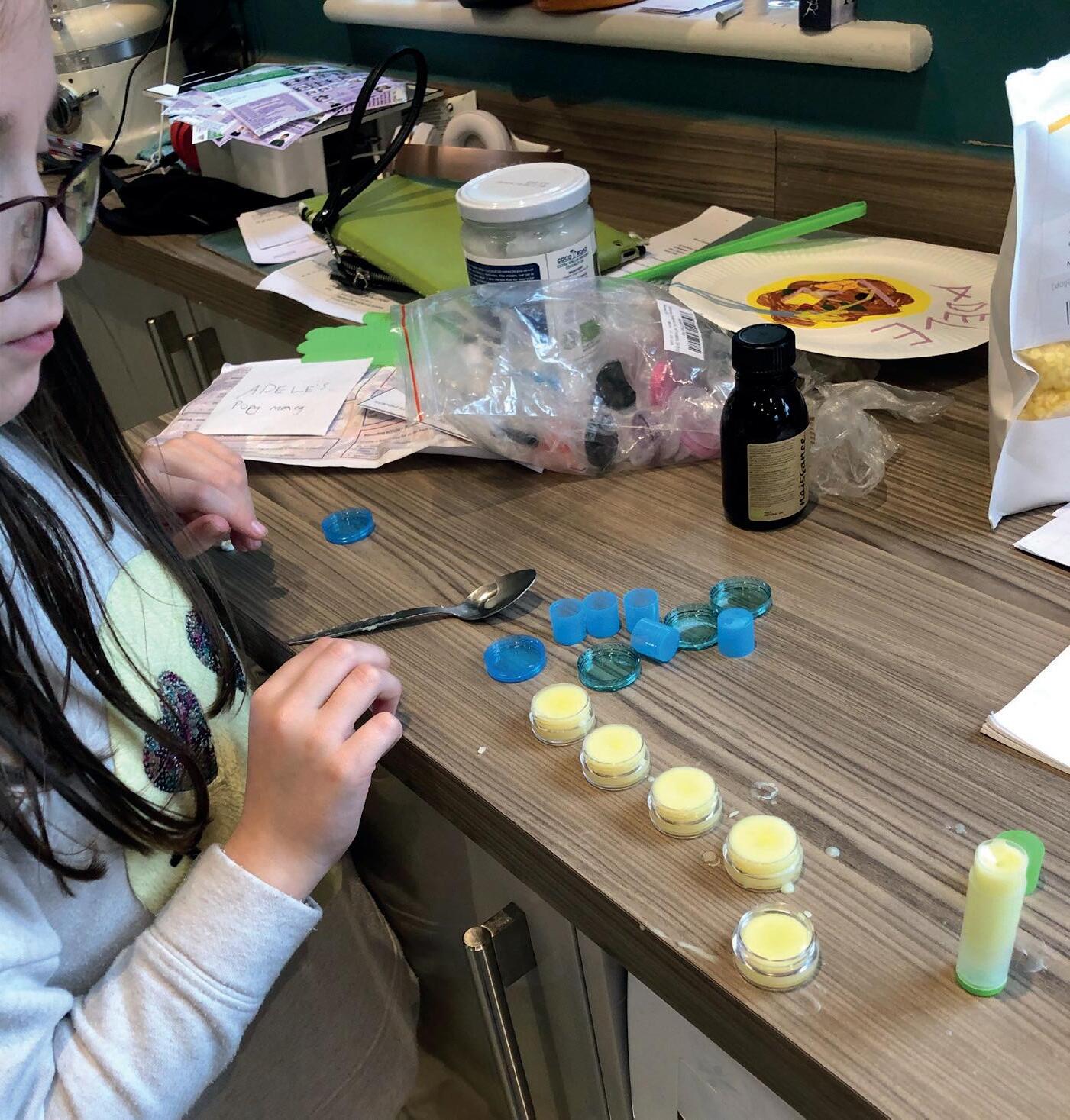
how to pursue opportunities with the resources they have, which is a skill everyone should learn, no matter their background.
IMPORTANT FOR PRIMARY SCHOOLS AND HOW CAN THEY IMPLEMENT IT?
The earlier we can teach kids about personal success through entrepreneurship, the better. However, this needs to be in a safe, age-appropriate way. I’ve seen firsthand how children, even at a young age, are naturally good at selling and persuading. It’s just about giving them the right framework.
For example, running a school fete, where pupils interact with the public and sell goods, is a fantastic way to introduce them to basic business principles. They learn about financial literacy, planning, and communication, all while having fun. A personal example comes from my daughter, Adele, who sold lip balm during the pandemic. It wasn’t about the sales she made (though she did have some success); it was about the skills she gained. She improved her maths, learned about
earning and saving money, and developed her ability to explain the benefits of her product to customers. Without that experience, she wouldn’t have had the chance to flex those entrepreneurial muscles.
HOW DOES PSHE AND PERSONAL DEVELOPMENT LINK WITH THIS?
We’re raising a generation of knowledgerich, skills-poor young people. They have the academic knowledge, but they lack the self-esteem and practical skills needed to navigate the real world.
This is where PSHE education comes in.
It’s the foundation for developing key skills like communication, empathy, decision-making, and negotiation, which are essential for entrepreneurship and life in general. Unfortunately, PSHE often gets overlooked, especially when pupils transition from primary to secondary school.
We don’t assess PSHE in the same way we do academic subjects, and that’s a real problem. Formal business qualifications like GCSE business studies don’t come until later, and by that point, we’ve already
missed valuable opportunities to teach kids financial literacy and entrepreneurial skills.
I find it frustrating that schools are forced to prioritise academic outcomes over personal development. Children’s life experiences - whether they’re playing on a football team, participating in theatre, or running a small business - aren’t given the value they deserve. We need to start recognising that knowledge comes from life experience too, not just from textbooks. Entrepreneurship is one of the most inclusive skills a child can learn. It doesn’t matter where you come from or what your background is. And it’s not just about starting a business; it’s about developing the confidence to back yourself, make difficult decisions and adapt to challenges.
"THIS KID IS GOING PLACES WITH HIS 2S". CAN YOU TELL OUR READERS MORE? Last year, I was a Year 11 tutor. And there was one kid—if you’re a teacher, you’ll know what I’m talking about—he was pretty invisible. He was showing up more or less, doing what he needed to do; I think he was over school.
He came from a challenging background. He was on free school meals, had three siblings, and was raised by a single mum. Despite multiple interventions, which involved support during tutor time and breaks, he remained disengaged. He would ask things like, "Why do we need to learn Pythagoras’ theorem? What does Shakespeare have to do with my life?" He had extra interventions. Whenever there was an intervention, he was invited to go, but he didn’t see the point. I think it’s fair to say he felt disengaged from his school experience. Now, I bonded with him not just because I was his form tutor but because I spoke to him about entrepreneurship.
One day, he asked me for advice on a TikTok shop he was setting up. He made some sales, and I was chuffed for him. There was a competition—Your Game Plan—to pitch an idea for a Christmas campaign for JD Sports on social media, and I encouraged him to go for it. He made this whole pitch. He made the campaign. He did it on his own. He videoed himself, created a storyboard, and submitted it all off his own back. He went through to the public vote.
The last time I saw him was the last day of

"Kids need to understand who they are, how they’ve lived, and how they can use their experiences to shape their futures"
his GCSEs, where I heard he’d made it to the competition final at the Meta offices in London, where Facebook is. I said to him, "You know what, you’ve already won." And that was the vibe he gave me. He was
walking taller. Here was a kid who threw his hat in the ring. And yes, he did the final and he didn’t win, but he did receive a work placement!
When his GCSEs came through, they were a sea of twos. And it doesn’t matter. If it wasn’t for having one person banging on to him about entrepreneurship and the possibilities of what you can do with your life outside this system of academic success, I think he would be a prime candidate for a different, more negative road.
But now he has ambition; he has self-belief. This kid is going to go far with his twos at GCSE! He’s going to be a success because he now has that self-belief. This is what we need in schools—the belief that we can have academic success and personal success through entrepreneurship and by learning to take risks. Succeeding and failing in whatever capacity that is gives
you personal success, just like this kid has experienced. This kid is not a failure.
WHAT ADVICE WOULD YOU GIVE PRIMARY TEACHERS WANTING TO INTRODUCE ENTREPRENEURSHIP INTO PSHE?
As the workplace evolves, entrepreneurship is becoming more essential, so it’s important to prepare pupils for this. Likewise, as technology continues to shape industries, with e-commerce sprouting on social platforms and advances in AI, pupils will need to learn how to adapt and leverage these tools.
At its core, entrepreneurship teaches skills like problem-solving, self-reliance and adaptability. These are the fundamental traits that will help young people thrive in any future workplace.
My advice is simple: promote selfknowledge, empathy, and curiosity. Kids need to understand who they are, how they’ve lived, and how they can use their experiences to shape their futures. We also need to give schools and teachers the time to make this happen. The pressure to deliver academic results can often mean that personal development takes a backseat. If we’re serious about preparing young people for the future, we need to create space in the curriculum for entrepreneurial education.

A huge thank you to Cassandra for sharing her inspiring journey and vision; her passion for shaping the next generation is truly contagious. If you have any comments, feedback, or would like to know about InsightEducat, find her on Instagram.

WE'RE THRILLED TO INTRODUCE OUR INTERACTIVE CATALOGUE, PACKED WITH ENGAGING RESOURCES DESIGNED TO ENHANCE YOUR PSED (PERSONAL, SOCIAL AND EMOTIONAL DEVELOPMENT) AND PSHE (PERSONAL, SOCIAL, HEALTH AND ECONOMIC) EDUCATION.
WHY EXPLORE OUR CATALOGUE?
Innovative Content: Dive into a wealth of interactive and immersive materials, including engaging videos with alternative endings, on-screen lesson guides, rigid assessments, and activities that make learning fun and impactful.
Award-Winning Quality: Our resources are recognised for excellence, ensuring you get the best tools to support and enrich your curriculum in line with current guidance.
Videos: Review our high-quality videos inside.
READY TO ELEVATE YOUR CLASSROOM? Click the button below to explore our interactive catalogue and unlock a world of high-quality PSED and PSHE resources. Your journey to a more engaging and effective educational experience starts here!
Click here



We take a look into the government’s recently proposed Child Health Action Plan to understand more about the role that schools could soon be expected to play in reducing childhood tooth decay.
The plan, which includes supervised toothbrushing for three- to five-yearolds, hopes to address an urgent issue we’ve seen make headlines over the last year.
The issue? Tooth decay remains the most common reason for hospital admissions among children aged five to nine in England.
Labour aims to alleviate this by focusing on prevention, helping children form lifelong oral hygiene habits from a young age. But as with any new initiative, there are questions about how this will affect schools and teachers.
Toothbrushing in schools is not a new idea, but Labour’s plan looks to formalise and expand the practice. The rationale is simple - by building supervised brushing into the school day, particularly in breakfast clubs, children who may not receive adequate dental care at home will receive support in forming good habits.
In turn, the programme hopes to reduce the dental backlog, which has worsened in recent years, with 47,581 tooth extractions recorded in NHS hospitals in England for children in 2023.
The British Dental Association (BDA) is a strong advocate for preventive measures like these. Eddie Crouch, chairman of the BDA, spoke to The Independent about how supervised toothbrushing can shift the focus from to actively preventing dental

diseases before they develop. He said: "Supervised toothbrushing can help us shift the dial from drilling and filling to actively preventing dental disease."
The government believes that implementing these measures in schools will reduce the pressure on NHS resources while improving children’s overall health outcomes.
While the initiative is aimed at breakfast clubs, some educational leaders have voiced concerns about how this will be implemented without adding strain to already overstretched schools.
Paul Whiteman, general secretary of the NAHT (National Association of Head Teachers), expressed doubts about
the logistics, particularly regarding staffing levels and facilities, in a piece for SchoolsWeek last year. He said: "Schools already play a role in teaching children about the importance of looking after their teeth through the curriculum, but there has to be a limit in terms of what we can expect them to do. We should demand more than window-dressing from all our politicians."
The article also reminds us that supervised brushing has been a hot topic before, first in 2014, when The National Institute for Health and Care Excellence and Public Health England recommended commissioning targeted supervised toothbrushing in early years’ settings. For schools that already run breakfast clubs, this could be a practical and effective way to address oral health inequality. Supervised brushing would be a small addition to the daily routine but could make a significant impact on children’s health, particularly in areas where access to dental care is limited.
WHAT DOES THIS MEAN FOR THE FUTURE?
With the government plan to provide 100,000 extra dental appointments
"Schools already play a role in teaching children about the importance of looking after their teeth through the curriculum, but there has to be a limit in terms of what we can expect them to do"
for children each year, combined with initiatives like supervised toothbrushing, schools are becoming greater players in tackling the nation’s public health challenges.
If this proposal is implemented, it could mark the beginning of a new era where educational settings are responsible not only for academic success but also for shaping children’s long-term health and wellbeing.
HERE IS A FREE EYFS KS1 VIDEO TO SHARE WITH YOUR PUPILS?

Three questions remain:
1. Are schools ready for this shift?
2. Do teachers have time?
3. Are there enough resources to support such a wide-reaching initiative?
It’s a discussion that is only just beginning but one that could significantly shape the future of both education and healthcare. Find out more about where to comment and/or have your say on education initiatives, HERE.

Teaching children how to handle money is one of the most valuable life skills we can gift. Yet, many pupils still leave school without the financial knowledge they need to thrive.
A recent survey by the Money and Pensions Service (MaPS) revealed that nearly all teachers agree: money skills should be taught in primary school. Despite this, 76% of teachers still feel that pupils are not learning the basics of money management. What’s more, according to research from Compare the Market and MyBnk, 61% of young adults do not recall receiving financial education at school. Out of the 29% who did, they report receiving an average of 11 minutes of tuition per week. Clearly, something isn’t adding up. For us, the solution is clear; we must keep prioritising financial literacy in primary schools.
WHY START TEACHING FINANCIAL LITERACY IN PRIMARY SCHOOLS?
Children are introduced to money earlier than we might think. Whether they’re
"The sooner they grasp concepts like saving, spending and budgeting, the more prepared they’ll be for managing their finances later in life"
saving for a new game or figuring out how to stretch their pocket money for a treat at the shop, they’re already making financial decisions.
The sooner they grasp concepts like saving, spending and budgeting, the more prepared they’ll be for managing their finances later in life.
With 8.3 million adults in the UK currently in debt (MaPS, 2024) and the country spending £192 billion annually on welfare

services, early financial education could significantly influence future generations. Financial literacy is essential not only for those facing debt but for all individuals.
Interestingly, a survey by the Financial Conduct Authority found that 24% of UK adults had low financial resilience, which was negatively impacting their lives. Thus, it’s imperative to help children build both competence and confidence in this area from an early age.
Let’s take a look at the current status and how financial literacy fits within primary school education.
HOW FINANCIAL EDUCATION WORKS IN UK PRIMARY SCHOOLS
When it comes to delivery, there’s a slight taxonomical difference - excuse the punin how financial education is approached across the UK.
England: Financial literacy is typically taught in Maths or PSHE lessons, but academies and independent schools can opt out of the National Curriculum, leading to inconsistent approaches.
Scotland: Financial education is integrated into the Curriculum for Excellence for children aged 3 to 14, introducing money management through Numeracy and Social Studies.
Wales: The Mathematics and Numeracy framework incorporates financial literacy, allowing pupils to learn practical skills like budgeting.
Northern Ireland: Financial education is taught through Personal Development and Mutual Understanding (PDMU), alongside Maths and Numeracy.
By ‘taxonomical difference’, we mean that each region categorises and delivers financial literacy differently. Whether it’s part of Maths, PSHE, or Social Studies, the subject stays the same, but its structure varies.
Tomato, tomato - whatever we call it -

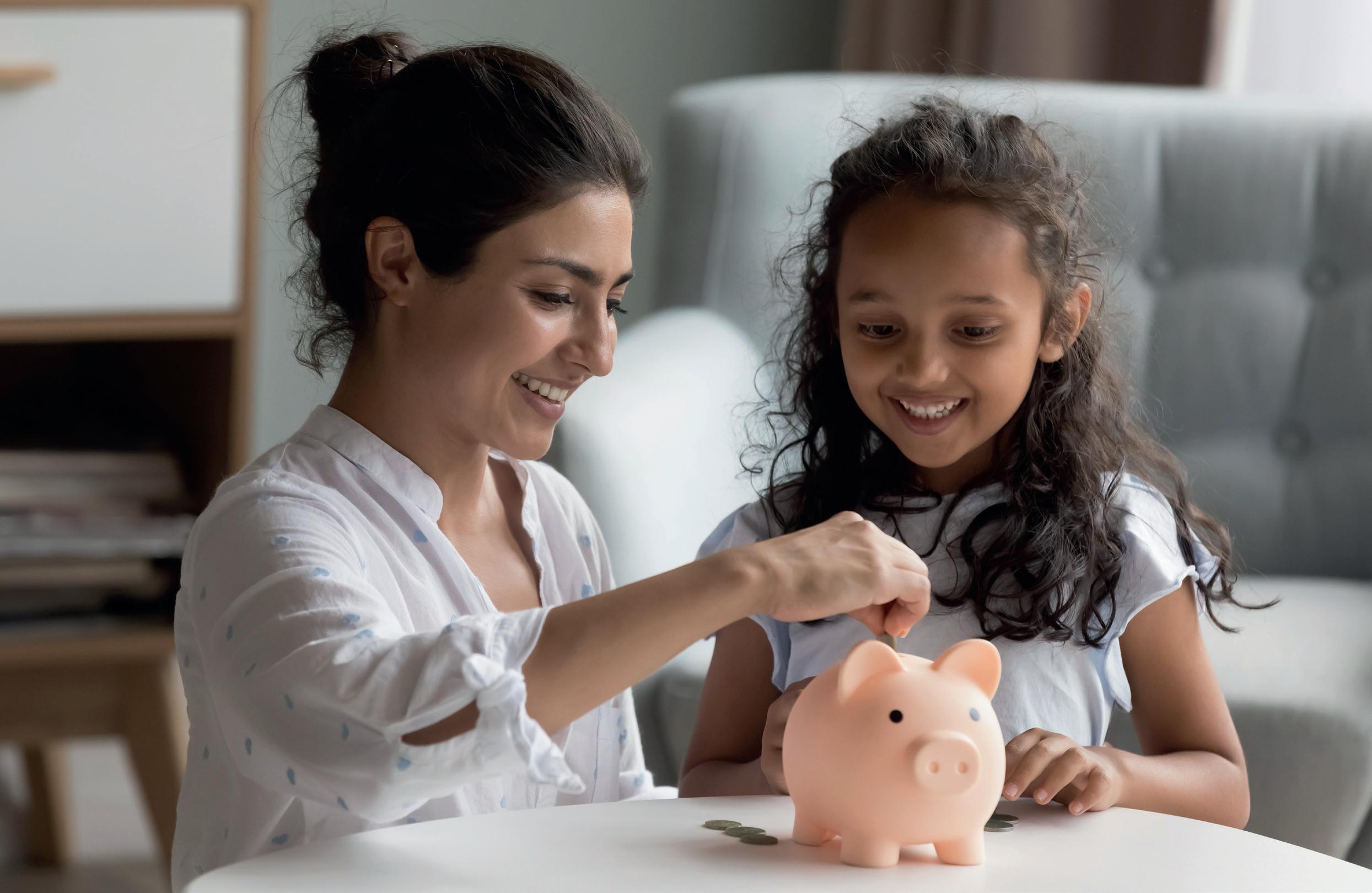
the fact remains: many pupils still feel unprepared when it comes to managing their finances. For instance, the February 2024 MaPS study found that only 33% of young people recalled learning something useful about finances in school. The question is, how can we address this gap? We believe engagement is the key.
Financial education doesn’t have to be dull. Many schools are successfully using interactive resources from PSHE programmes that bring financial concepts to life.
For example, the 1decision Working In Our World topic, for 5-to-8-year-olds, is specifically designed to help young learners grasp the basics of money management. It covers the different ways we receive money, how to keep money safe, as well as how to decide between needs and wants. Through interactive videos and practical activities, such as ‘Deedee’s Pocket Money’ and ‘Money Around the World’ worksheets, children are welcomed into the world of finance and given the opportunity to practise financial literacy in a fun and relatable way. For older pupils (8 to 11 years), the
1decision Working World module covers more advanced topics such as earning income from chores, thinking about dream jobs and exploring ways to help those who care for them. You’ll find the Enterprise topic included within this, where pupils can learn about budgeting, saving and even starting their own business.
There’s also a dedicated In-App Purchases section to help pupils understand digital spending - from navigating money-related terms and learning strategies for saving to realising the impact of buying something without permission, and more.
By using interactive topics in class and discussing examples from the super engaging alternative-ending videos, pupils are encouraged to think about the financial challenges they could face in their own lives. The more pupils can relate, the more they can learn and take with them into the world.
We understand that time and funding can be limited. That’s why, to support teachers further 1decision offer several complementary topics, including content from the Working World module through their Free Resources for Year 4. If you’re not
yet a 1decision subscriber, you can explore these materials and start bringing financial literacy into your classroom at no cost.
FOR A TASTER PACK Click here
As the cost of living rises and families feel the financial strain, teaching kids how to manage money becomes more urgent. By increasing financial literacy in primary schools, we equip pupils with the foundation they need to make informed financial decisions. Whether they are learning to spend pocket money wisely, budget for a class project, or appreciate the value of saving, these early lessons are crucial for setting them up for a secure financial future.

In recent years, the importance of Personal, Social, Health, and Economic (PSHE) education in schools has grown - not only as a statutory requirement but as a key component in developing well-rounded, resilient, and respectful individuals.
However, many schools may question the value of investing in a structured PSHE scheme, particularly when budgets are tight and priorities compete.
What is often overlooked, though, are the hidden costs of not having one. Schools may inadvertently spend more time, resources and energy dealing with issues that a well-implemented PSHE scheme could help mitigate.
MANAGING BEHAVIOUR AND DEREGULATED CHILDREN
One of the most time-consuming challenges in any school is managing behaviour. Children who are not emotionally regulated can exhibit disruptive behaviour, leading to frequent classroom interruptions and forcing teachers to divert time from
teaching to manage these situations.
A well-structured PSHE scheme fosters emotional intelligence, self-regulation and interpersonal skills; helping pupils better manage their emotions and behaviour.
Schools without this foundation often spend valuable staff time dealing with behavioural issues that could have been prevented through consistent, preventative PSHE education.
THE IMPACT ON STAFF RESOURCES
Without a dedicated PSHE scheme, staff often spend countless hours developing their own resources, lesson plans and assessments. While teachers are skilled professionals, creating a robust PSHE curriculum from scratch is time intensive. This not only diverts attention from other teaching responsibilities but can also lead to inconsistencies in delivery, especially if staff have varying levels of confidence or expertise in addressing sensitive topics like mental health, relationships or online safety.
Time spent creating resources could be

better utilised for direct teaching, core subject lesson planning, or addressing pupils' needs in a more targeted way.
INCREASED INCIDENTS OF BULLYING AND RACISM
A lack of structured PSHE education can lead to an increase in cases of bullying, racism and other forms of discrimination. Without the tools to understand diversity, empathy and respect for others, pupils are more likely to engage in negative behaviours.
Addressing these incidents after they occur consumes significant staff time, whether through investigations, meetings with parents, or restorative conversations with pupils.
An effective PSHE scheme proactively addresses these issues, helping children develop respect for others and understand the consequences of harmful actions before they escalate.
LOST TEACHING TIME
When schools rely on in-house
development of PSHE materials, teaching time can suffer. Teachers already balance a full timetable of subjects such as Maths, English, and Science, and the added responsibility of developing and delivering PSHE content can result in rushed lessons or superficial coverage of important topics. Worse still, some teachers may feel confident delivering complex subjects like mental health or sex education, while others avoid these lessons altogether. A ready-made PSHE scheme ensures all staff have the resources needed to deliver high-quality, well-planned lessons that meet statutory requirements without compromising other areas of the curriculum.
Assessment is a critical component of any curriculum, helping schools gauge pupil progress and identify areas needing further support. However, when PSHE is taught without a structured scheme, assessing pupils' learning meaningfully can prove challenging. A comprehensive PSHE programme often includes built-
"Although investing in a PSHE scheme may initially appear to be an added cost, the longterm benefits far outweigh the price"
in assessments, allowing schools to track progress in areas like emotional literacy, resilience and understanding of social issues. This data is invaluable for identifying pupils who may need additional support or intervention, ensuring no child falls through the cracks. Without a scheme, progress tracking becomes inconsistent, leaving schools unsure if their PSHE teaching is achieving the desired impact.
While purchasing a PSHE scheme may seem like an additional expense, it is essential to view it as an investment rather
than a cost. A structured PSHE scheme equips schools with the tools to deliver effective, consistent lessons; it reduces the time spent managing behaviour, developing resources and addressing issues after they arise. Ultimately, this can save money by building a positive, respectful learning environment where both pupils and staff thrive. In today’s educational climate, where both time and resources are precious, schools must be strategic in allocating their budgets. Although investing in a PSHE scheme may initially appear to be an added cost, the long-term benefits far outweigh the price. By promoting a positive school culture, reducing behavioural issues and providing staff with high-quality resources, a PSHE scheme can save schools both time and money. More importantly, it helps create a nurturing environment where every child feels supported, respected and able to succeed.
Ultimately, the question is not whether schools can afford to invest in a PSHE scheme - it’s whether they can afford not to.

www.youtube.com/c/Flourishwithus www.tiktok.com/@wearefl0urish

We love to see and hear how 1decision is supporting schools in delivering outstanding PSHE and personal development to pupils across the globe. If you would like to share feedback or pictures of your displays, please connect with our socials or send to morgan@1decision.co.uk
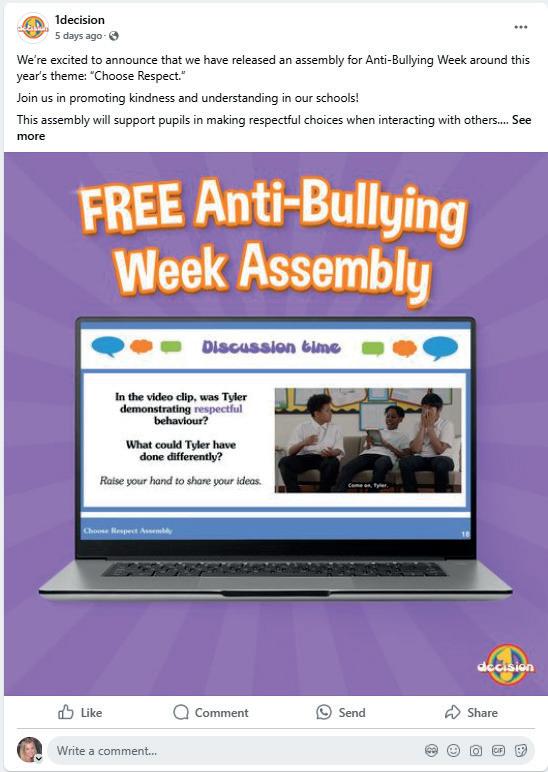

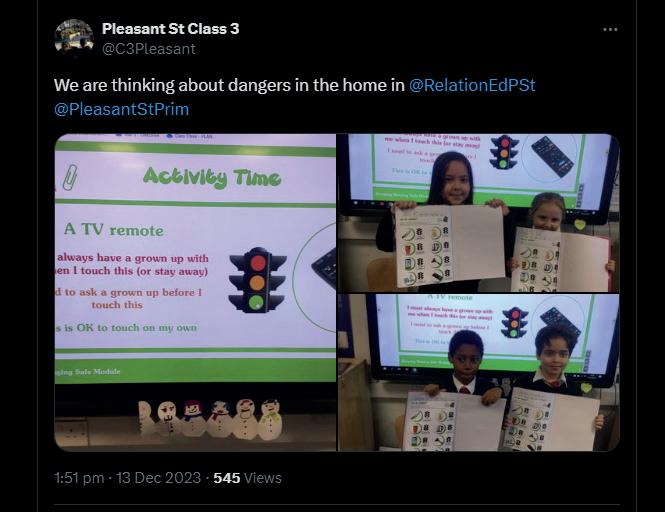
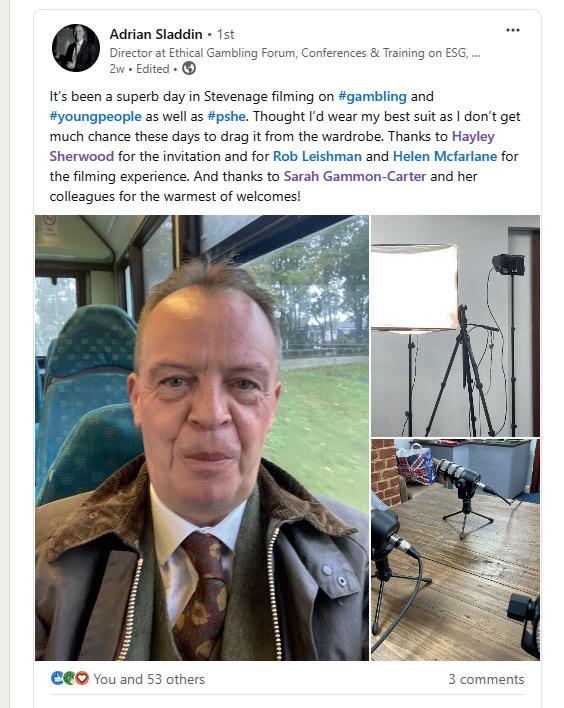


If you would like more support to evidence your pupils work, you can now download our A3 posters. These can be found in the Teacher Zone


